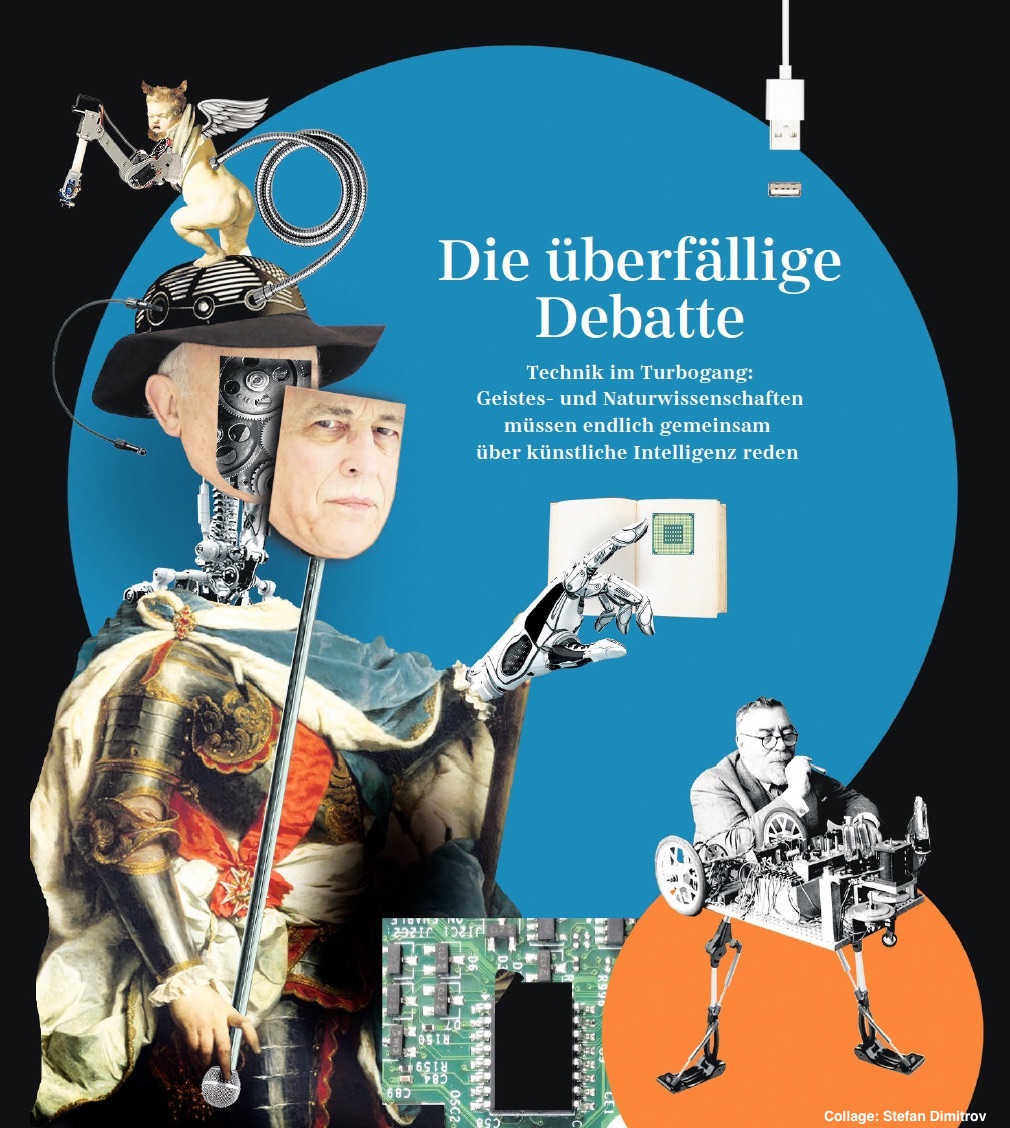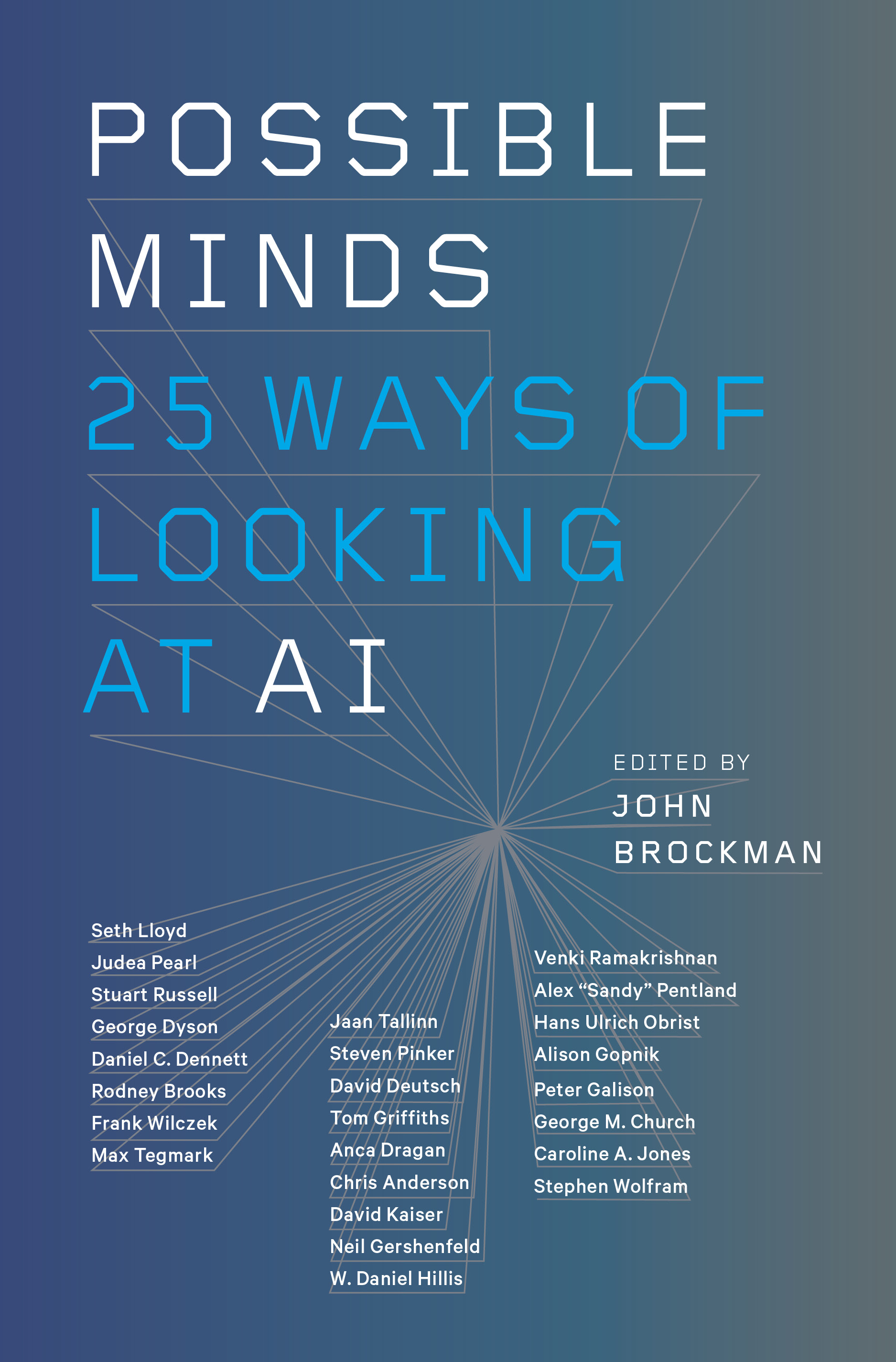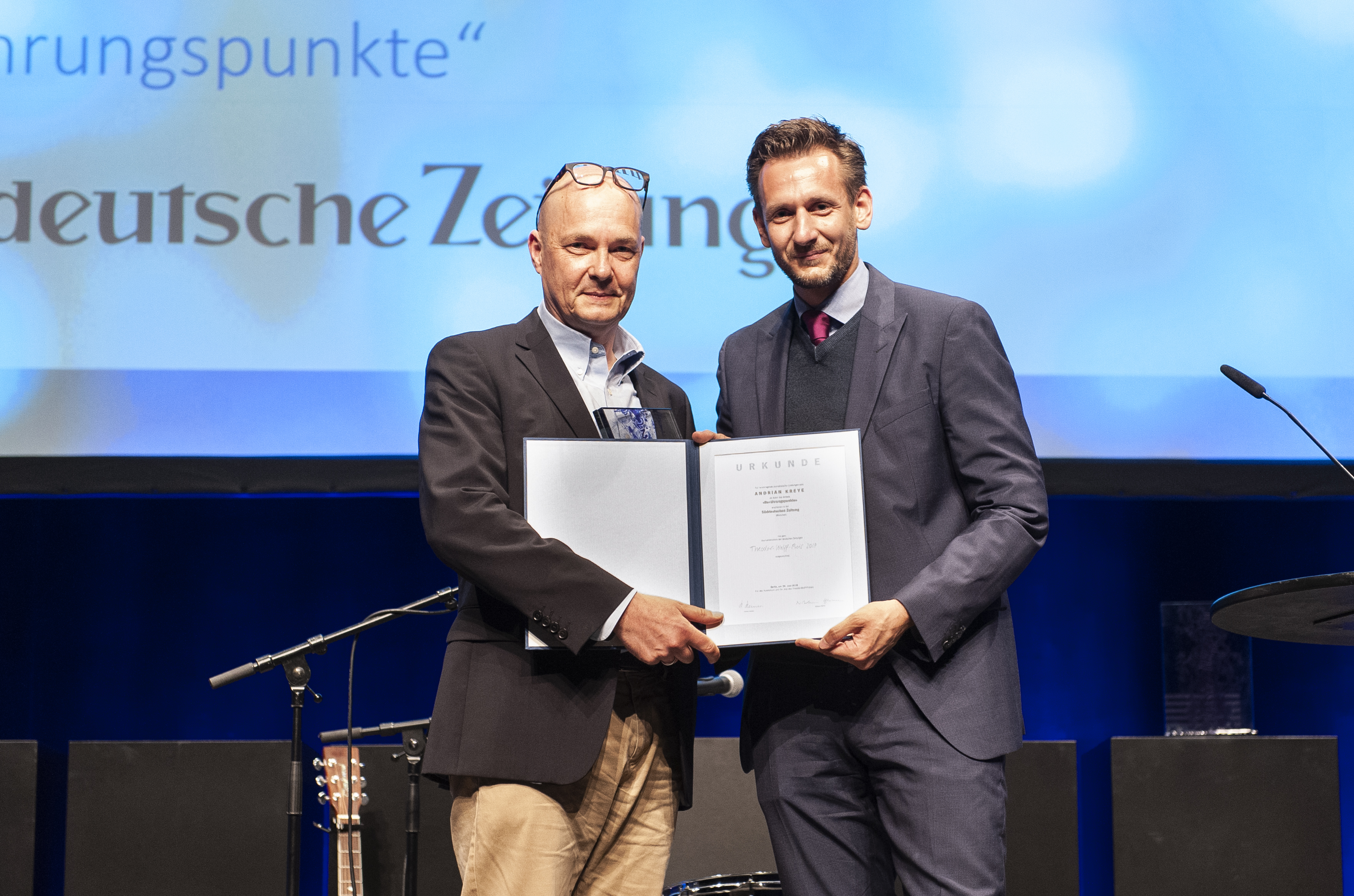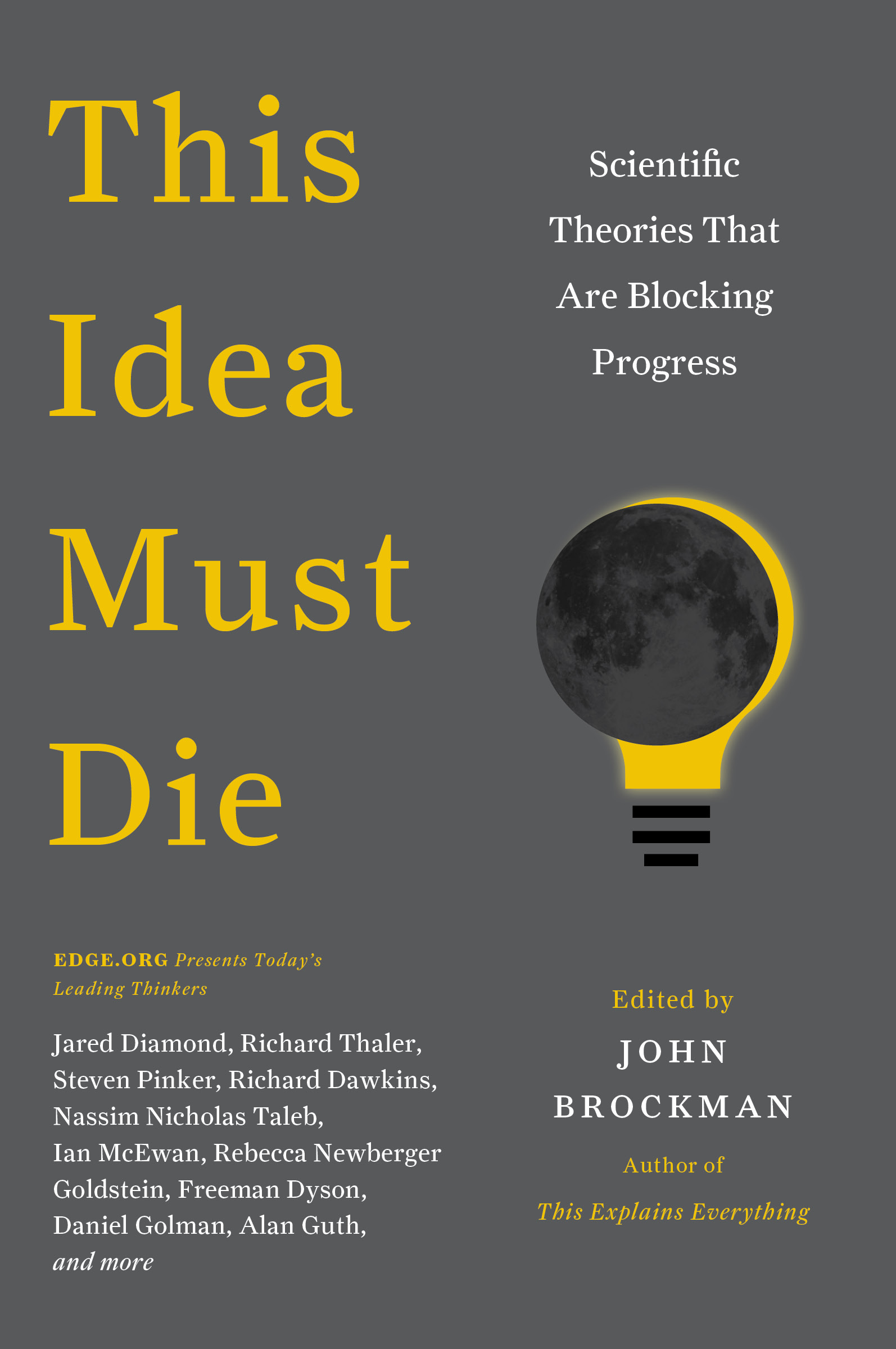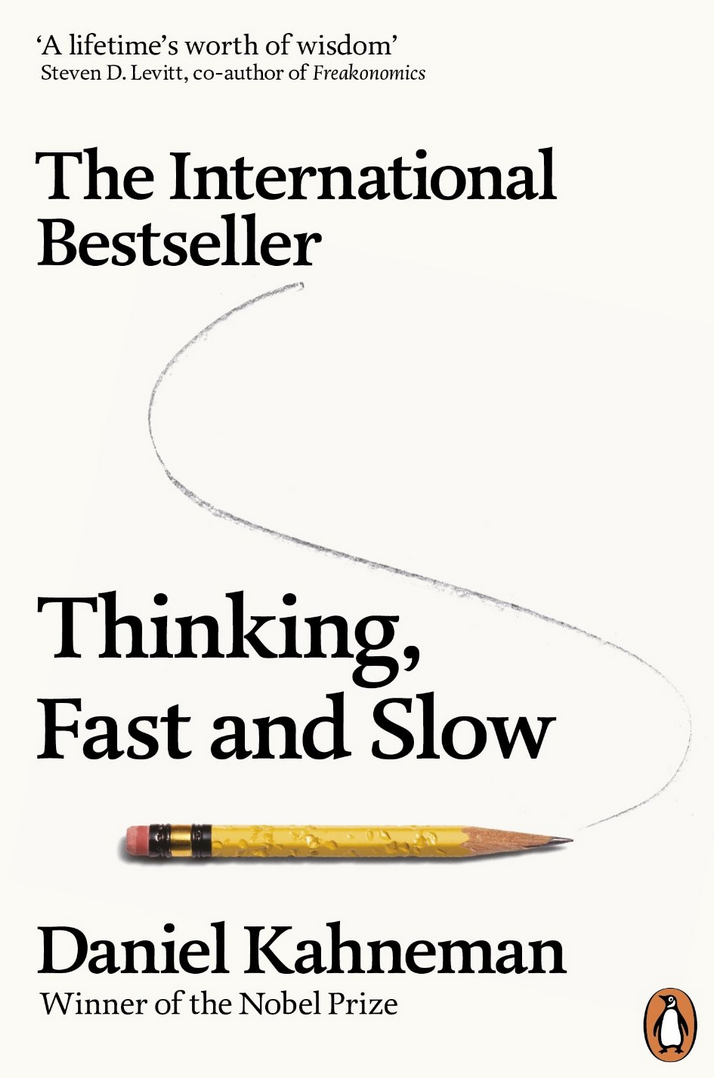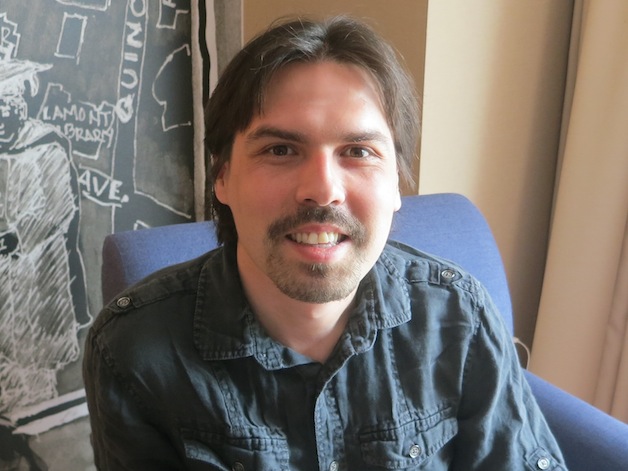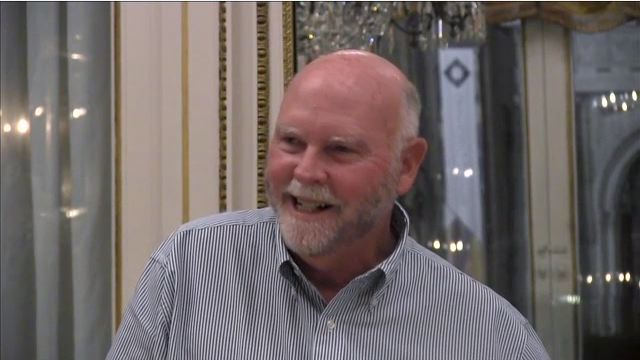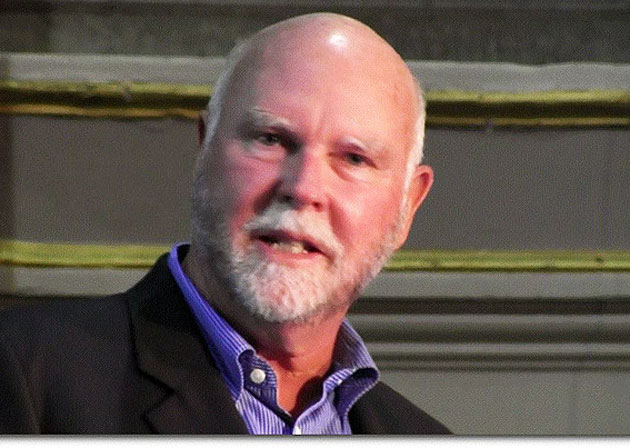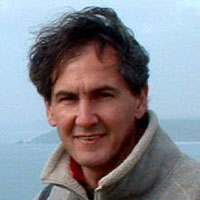Events: Special Events
I am puzzled by the number of references to what AI “is” and what it “cannot do” when in fact the new AI is less than ten years old and is moving so fast that references to it in the present tense are dated almost before they are uttered. The statements that AI doesn’t know what it’s talking about or is not enjoying itself are trivial if they refer to the present and undefended if they refer to the medium-range future—say 30 years. —Daniel Kahneman
 From left: W. Daniel Hillis, Neil Gershenfeld, Frank Wilczek, David Chalmers, Robert Axelrod, Tom Griffiths, Caroline Jones, Peter Galison, Alison Gopnik, John Brockman, George Dyson, Freeman Dyson, Seth Lloyd, Rod Brooks, Stephen Wolfram, Ian McEwan. In absentia: Andy Clark, George M. Church, Daniel Kahneman, Alex "Sandy" Pentland, Venki Ramakrishnan (Click to expand photo)
From left: W. Daniel Hillis, Neil Gershenfeld, Frank Wilczek, David Chalmers, Robert Axelrod, Tom Griffiths, Caroline Jones, Peter Galison, Alison Gopnik, John Brockman, George Dyson, Freeman Dyson, Seth Lloyd, Rod Brooks, Stephen Wolfram, Ian McEwan. In absentia: Andy Clark, George M. Church, Daniel Kahneman, Alex "Sandy" Pentland, Venki Ramakrishnan (Click to expand photo)

INTRODUCTION
by Venki Ramakrishnan
The field of machine learning and AI is changing at such a rapid pace that we cannot foresee what new technical breakthroughs lie ahead, where the technology will lead us or the ways in which it will completely transform society. So it is appropriate to take a regular look at the landscape to see where we are, what lies ahead, where we should be going and, just as importantly, what we should be avoiding as a society. We want to bring a mix of people with deep expertise in the technology as well as broad thinkers from a variety of disciplines to make regular critical assessments of the state and future of AI.
—Venki Ramakrishnan, President of the Royal Society and Nobel Laureate in Chemistry, 2009, is Group Leader & Former Deputy Director, MRC Laboratory of Molecular Biology; Author, Gene Machine: The Race to Decipher the Secrets of the Ribosome.

I would like to set aside the technological constraints in order to imagine how an embodied artificial consciousness might negotiate the open system of human ethics—not how people think they should behave, but how they do behave. For example, we may think the rule of law is preferable to revenge, but matters get blurred when the cause is just and we love the one who exacts the revenge.
IAN MCEWAN is a novelist whose works have earned him worldwide critical acclaim. He is the recipient of the Man Booker Prize for Amsterdam (1998), the National Book Critics' Circle Fiction Award, and the Los Angeles Times Prize for Fiction for Atonement (2003). His most recent novel is Machines Like Me. Ian McEwan's Edge Bio Page
RODNEY BROOKS
The Cul-de-Sac of the Computational Metaphor
Have we gotten into a cul-de-sac in trying to understand animals as machines from the combination of digital thinking and the crack cocaine of computation uber alles that Moore's law has provided us? What revised models of brains might we be looking at to provide new ways of thinking and studying the brain and human behavior? Did the Macy Conferences get it right? Is it time for a reboot?
RODNEY BROOKS is Panasonic Professor of Robotics, emeritus, MIT; former director of the MIT Artificial Intelligence Laboratory and the MIT Computer Science & Artificial Intelligence Laboratory (CSAIL); founder, chairman, and CTO of Rethink Robotics; and author of Flesh and Machines. Rodney Brooks's Edge Bio Page
STEPHEN WOLFRAM
Mining the Computational Universe
I've spent several decades creating a computational language that aims to give a precise symbolic representation for computational thinking, suitable for use by both humans and machines. I'm interested in figuring out what can happen when a substantial fraction of humans can communicate in computational language as well as human language. It's clear that the introduction of both human spoken language and human written language had important effects on the development of civilization. What will now happen (for both humans and AI) when computational language spreads?
STEPHEN WOLFRAM is a scientist, inventor, and the founder and CEO of Wolfram Research. He is the creator of the symbolic computation program Mathematica and its programming language, Wolfram Language, as well as the knowledge engine Wolfram|Alpha. He is also the author of A New Kind of Science. Stephen Wolfram's Edge Bio Page
FREEMON DYSON
The Brain Is Full of Maps
Brains use maps to process information. Information from the retina goes to several areas of the brain where the picture seen by the eye is converted into maps of various kinds. Information from sensory nerves in the skin goes to areas where the information is converted into maps of the body. The brain is full of maps. And a big part of the activity is transferring information from one map to another.
FREEMAN DYSON, emeritus professor of physics at the Institute for Advanced Study in Princeton, has worked on nuclear reactors, solid-state physics, ferromagnetism, astrophysics, and biology, looking for problems where elegant mathematics could be usefully applied. His books include Disturbing the Universe, Weapons and Hope, Infinite in All Directions, and Maker of Patterns. Freeman Dyson's Edge Bio Page
CAROLINE A. JONES
Questioning the Cranial Paradigm
Part of the definition of intelligence is always this representation model. . . . I’m pushing this idea of distribution—homeostatic surfing on worldly engagements that the body is always not only a part of but enabled by and symbiotic on. Also, the idea of adaptation as not necessarily defined by the consciousness that we like to fetishize. Are there other forms of consciousness? Here’s where the gut-brain axis comes in. Are there forms that we describe as visceral gut feelings that are a form of human consciousness that we’re getting through this immune brain?
CAROLINE A. JONES is a professor of art history in the Department of Architecture at MIT and author, most recently, of The Global Work of Art. Caroline A. Jones's Edge Bio Page
ROBERT AXELROD
Collaboration and the Evolution of Disciplines
The questions that I’ve been interested in more recently are about collaboration and what can make it succeed, also about the evolution of disciplines themselves. The part of collaboration that is well understood is that if a team has a diversity of tools and backgrounds available to them—they come from different cultures, they come from different knowledge sets—then that allows them to search a space and come up with solutions more effectively. Diversity is very good for teamwork, but the problem is that there are clearly barriers to people from diverse backgrounds working together. That part of it is not well understood. The way people usually talk about it is that they have to learn each other’s language and each other’s terminology. So, if you talk to somebody from a different field, they’re likely to use a different word for the same concept.
ROBERT AXELROD, Walgreen Professor for the Study of Human Understanding at the University of Michigan, is best known for his interdisciplinary work on the evolution of cooperation. He is author of The Evolution of Cooperation. Robert Axelrod's Edge Bio Page
ALISON GOPNIK
A Separate Kind of Intelligence
It looks as if there’s a general relationship between the very fact of childhood and the fact of intelligence. That might be informative if one of the things that we’re trying to do is create artificial intelligences or understand artificial intelligences. In neuroscience, you see this pattern of development where you start out with this very plastic system with lots of local connection, and then you have a tipping point where that turns into a system that has fewer connections but much stronger, more long-distance connections. It isn’t just a continuous process of development. So, you start out with a system that’s very plastic but not very efficient, and that turns into a system that’s very efficient and not very plastic and flexible.
ALISON GOPNIK is a developmental psychologist at UC Berkeley. Her books include The Philosophical Baby and, most recently, The Gardener and the Carpenter: What the New Science of Child Development Tells Us About the Relationship Between Parents and Children. Alison Gopnik's Edge Bio Page
TOM GRIFFITHS
Doing More with Less
Imagine a superintelligent system with far more computational resources than us mere humans that’s trying to make inferences about what the humans who are surrounding it—which it thinks of as cute little pets—are trying to achieve so that it is then able to act in a way that is consistent with what those human beings might want. That system needs to be able to simulate what an agent with greater constraints on its cognitive resources should be doing, and it should be able to make inferences, like the fact that we’re not able to calculate the zeros of the Riemann zeta function or discover a cure for cancer. It doesn’t mean we’re not interested in those things; it’s just a consequence of the cognitive limitations that we have.
TOM GRIFFITHS is the Henry R. Luce Professor of Information, Technology, Consciousness, and Culture at Princeton University. He is co-author (with Brian Christian) of Algorithms to Live By. Tom Griffiths's Edge Bio Page
FRANK WILCZEK
Ecology of Intelligence
There’s this tremendous drive for intelligence, but there will be a long period of coexistence in which there will be an ecology of intelligence. Humans will become enhanced in different ways and relatively trivial ways with smartphones and access to the Internet, but also the integration will become more intimate as time goes on. Younger people who interact with these devices from childhood will be cyborgs from the very beginning. They will think in different ways than current adults do.
FRANK WILCZEK is the Herman Feshbach Professor of Physics at MIT, recipient of the 2004 Nobel Prize in physics, and author of A Beautiful Question: Finding Nature’s Deep Design. Frank Wilczek's Edge Bio Page
NEIL GERSHENFELD
Morphogenesis for the Design of Design
As we work on the self-reproducing assembler, and writing software that looks like hardware that respects geometry, they meet in morphogenesis. This is the thing I’m most excited about right now: the design of design. Your genome doesn’t store anywhere that you have five fingers. It stores a developmental program, and when you run it, you get five fingers. It’s one of the oldest parts of the genome. Hox genes are an example. It’s essentially the only part of the genome where the spatial order matters. It gets read off as a program, and the program never represents the physical thing it’s constructing. The morphogenes are a program that specifies morphogens that do things like climb gradients and symmetry break; it never represents the thing it’s constructing, but the morphogens then following the morphogenes give rise to you.
NEIL GERSHENFELD is the director of MIT’s Center for Bits and Atoms; founder of the global fab lab network; the author of FAB; and co-author (with Alan Gershenfeld & Joel Cutcher-Gershenfeld) of Designing Reality. Neil Gershenfeld's Edge Bio Page
DAVID CHALMERS
The Language of Mind
Will every possible intelligent system somehow experience itself or model itself as having a mind? Is the language of mind going to be inevitable in an AI system that has some kind of model of itself? If you’ve just got an AI system that's modeling the world and not bringing itself into the equation, then it may need the language of mind to talk about other people if it wants to model them and model itself from the third-person perspective. If we’re working towards artificial general intelligence, it's natural to have AIs with models of themselves, particularly with introspective self-models, where they can know what’s going on in some sense from the first-person perspective.
DAVID CHALMERS is University Professor of Philosophy and Neural Science and co-director of the Center for Mind, Brain, and Consciousness at New York University. He is best known for his work on consciousness, including his formulation of the "hard problem" of consciousness. David Chalmers's Edge Bio Page
GEORGE DYSON
AI That Evolves in the Wild
I’m interested not in domesticated AI—the stuff that people are trying to sell. I'm interested in wild AI—AI that evolves in the wild. I’m a naturalist, so that’s the interesting thing to me. Thirty-four years ago there was a meeting just like this in which Stanislaw Ulam said to everybody in the room—they’re all mathematicians—"What makes you so sure that mathematical logic corresponds to the way we think?" It’s a higher-level symptom. It’s not how the brain works. All those guys knew fully well that the brain was not fundamentally logical.
GEORGE DYSON is a historian of science and technology and author of Darwin Among the Machines and Turing’s Cathedral. George Dyson's Edge Bio Page
PETER GALISON
Epistemic Virtues
I’m interested in the question of epistemic virtues, their diversity, and the epistemic fears that they’re designed to address. By epistemic I mean how we gain and secure knowledge. What I’d like to do here is talk about what we might be afraid of, where our knowledge might go astray, and what aspects of our fears about how what might misfire can be addressed by particular strategies, and then to see how that’s changed quite radically over time.
PETER GALISON is a science historian; Joseph Pellegrino University Professor and co-founder of the Black Hole Initiative at Harvard University; and author of Einstein's Clocks and Poincaré’s Maps: Empires of Time. Peter Galison's Edge Bio Page
SETH LLOYD
Communal Intelligence
We haven't talked about the socialization of intelligence very much. We talked a lot about intelligence as being individual human things, yet the thing that distinguishes humans from other animals is our possession of human language, which allows us both to think and communicate in ways that other animals don’t appear to be able to. This gives us a cooperative power as a global organism, which is causing lots of trouble. If I were another species, I’d be pretty damn pissed off right now. What makes human beings effective is not their individual intelligences, though there are many very intelligent people in this room, but their communal intelligence.
SETH LLOYD is a theoretical physicist at MIT; Nam P. Suh Professor in the Department of Mechanical Engineering; external professor at the Santa Fe Institute; and author of Programming the Universe: A Quantum Computer Scientist Takes on the Cosmos. Seth Lloyd's Edge Bio Page
My interest in AI comes from a broader interest in a much more interesting question to which I have no answers (and can barely articulate the question): How do lots of simple things interacting emerge into something more complicated? Then how does that create the next system out of which that happens, and so on?
W. DANIEL HILLIS is an inventor, entrepreneur, and computer scientist, Judge Widney Professor of Engineering and Medicine at USC, and author of The Pattern on the Stone: The Simple Ideas That Make Computers Work. W. Daniel Hillis's Edge Bio Page
IN ABSENTIA…
Andy Clark

Perception itself is a kind of controlled hallucination. . . . [T]he sensory information here acts as feedback on your expectations. It allows you to often correct them and to refine them. But the heavy lifting seems to be being done by the expectations. Does that mean that perception is a controlled hallucination? I sometimes think it would be good to flip that and just think that hallucination is a kind of uncontrolled perception.
ANDY CLARK is professor of Cognitive Philosophy at the University of Sussex and author of Surfing Uncertainty: Prediction, Action, and the Embodied Mind. Andy Clark’s Edge Bio Page
George M. Church

The opportunity is not mere AI-ML, but various hybrids of inorganic-digital-von Neumann architectures with “Natural computing” (CAD of natural phenomena and/or employing semi-natural materials to compute), which benefits from our exponentially growing synthetic capabilities. Also, both of these are being hybridized with highly evolved human brains (including long-tail exceptional individuals) and our new tools for building more and more complex synthetic human brain components using genetics and in-vitro developmental biology.
GEORGE M. CHURCH is Robert Winthrop Professor of Genetics at Harvard Medical School, Professor of Health Sciences and Technology at Harvard-MIT, and co-author (with Ed Regis) of Regenesis: How Synthetic Biology Will Reinvent Nature and Ourselves. George Church’s Edge Bio Page
Daniel Kahneman
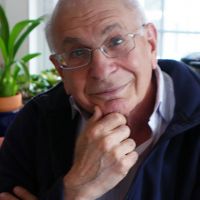
My late teacher Yehoshua Bar-Hillel was once asked, in the 1950s, whether computers would ever understand language. He answered unhesitatingly “Never” and immediately clarified that by “Never” he meant “at least 50 years.” I am puzzled by the number of references to what AI “is” and what it “cannot do” when in fact the new AI is less than ten years old and is moving so fast that references to it in the present tense are dated almost before they are uttered. The statements that AI doesn’t know what it’s talking about or is not enjoying itself are trivial if they refer to the present and undefended if they refer to the medium-range future—say 30 years. Hype is bad, but the debunkers should remember that the AI Winter was brought about by two brilliant people proving what a one-layer Perceptron could not do. My optimistic question would be “Where will the next breakthrough in AI come from—and what will it easily do that deep learning is not good at?”
DANIEL KAHNEMAN, Nobel Laureate in Economic Sciences (2002), is Eugene Higgins Professor of Psychology Emeritus at Princeton University, Professor of Psychology and Public Affairs Emeritus at the Woodrow Wilson School, and winner of the 2013 Presidential Medal of Honor. He is author of Thinking, Fast and Slow. Daniel Kahneman’s Edge Bio Page
Alex “Sandy” Pentland
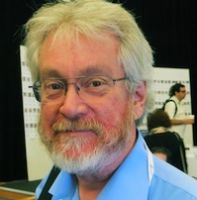
For the first time in history there is fine-grained data about the behavior of everyone in entire societies, from phones, transactions, transport, etc. This data shows that people are not very different from other social species, with the exception that we have much better social learning, and so we are much better at building a common set of heuristics generally known as culture. The math of this process is very similar to a distributed version of a well-known near-optimal financial portfolio strategy, and is analogous to reinforcement learning over a space of "micro-strategies." This insight suggests a way to make humanity as a whole much smarter than we are today, something I call "HumanAI."
ALEX “SANDY” PENTLAND is Toshiba Professor and professor of media arts and sciences at MIT; director of the Human Dynamics and Connection Science labs and the Media Lab Entrepreneurship Program, and the author of Social Physics. Sandy Pentland’s Edge Bio Page
Venki Ramakrishnan

The field of machine learning and AI is changing at such a rapid pace that we cannot foresee what new technical breakthroughs lie ahead, where the technology will lead us or the ways in which it will completely transform society. So it is appropriate to take a regular look at the landscape to see where we are, what lies ahead, where we should be going and, just as importantly, what we should be avoiding as a society. We want to bring a mix of people with deep expertise in the technology as well as broad thinkers from a variety of disciplines to make regular critical assessments of the state and future of AI.
VENKI RAMAKRISHNAN, President of the Royal Society, is the recipient of the Nobel Prize in Chemistry, 2009, and Group Leader & Former Deputy Director, MRC Laboratory of Molecular Biology. He is the author of Gene Machine: The Race to Decipher the Secrets of the Ribosome. Venki Ramakrishan’s Edge Bio Page

Front Page
DEFGH Nr. 63, Freitag, 15. März 2019. 
Collage: Stefan Dimitrov
The Ghost in the Machine
Artificial intelligence inspires wild fantasies, but remains hard to imagine. A SZ series creates clarity.
__________________________________________________
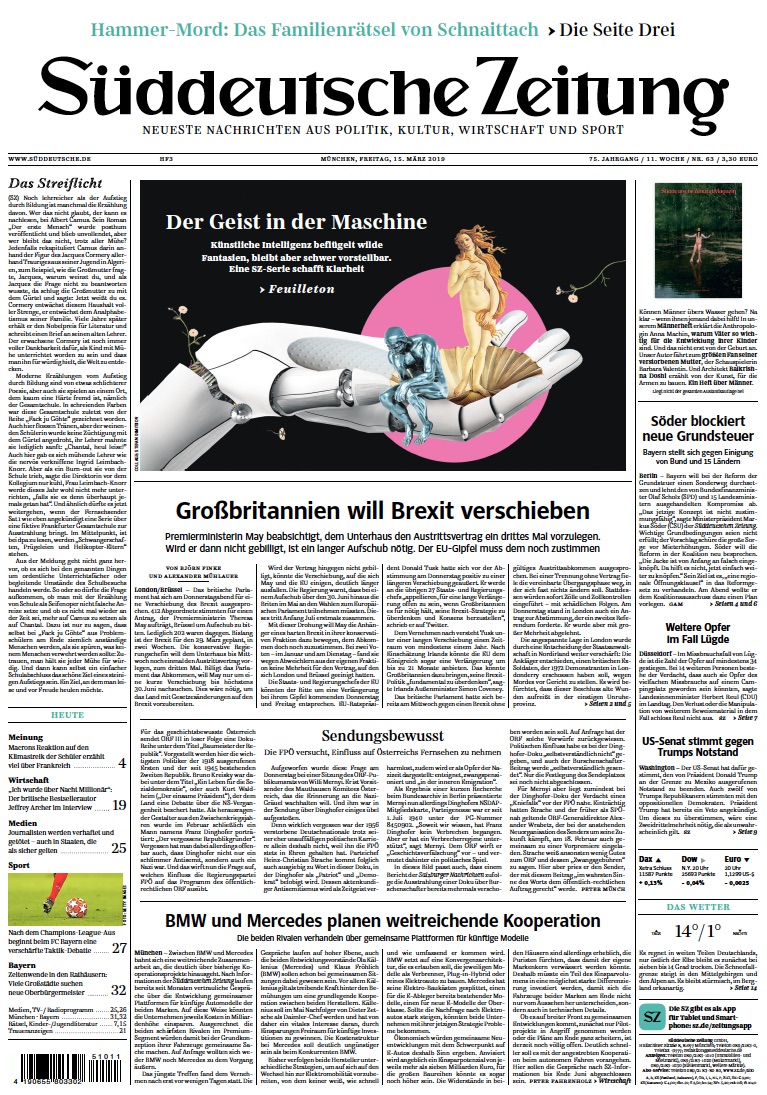
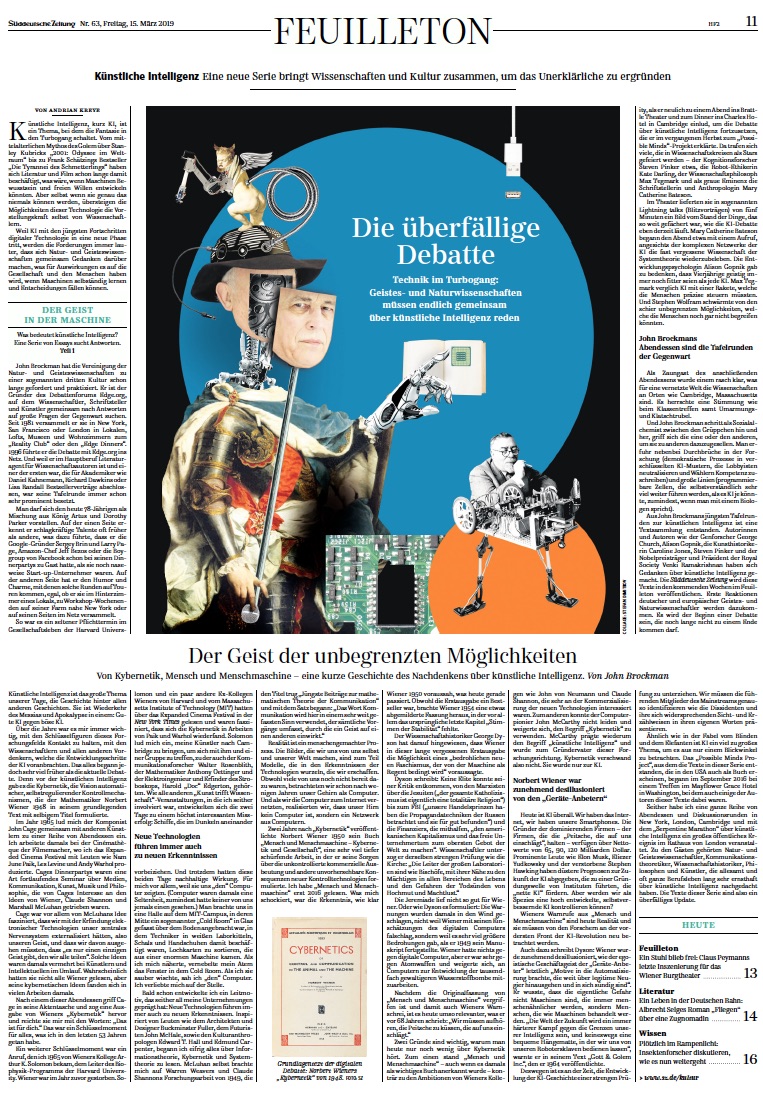
__________________________________________________
Artificial intelligence:
A new series brings science and culture together to fathom the inexplicable
_________________________________________________
The Overdue Debate
By Andrian Kreye
Friday, March 15, 2019
_________________________________________
The Spirit In The Machine
What does artificial intelligence mean?
A series of essays seeks answers.
Part 1
_________________________________________
John Brockman has long called for, and practiced, the unification of the natural sciences and humanities into what he has called “the third culture”. He is the founder of the debate forum Edge.org, where scientists, writers and artists work together to ask the great questions of the present. Since 1981, his "Reality Club" has held gatherings in New York, San Francisco or London in pubs, lofts, museums and living rooms. In 1996, he migrated the debate to Edge.org on the web, which led to his Edge dinners.
Because he has a full-time career as a literary agent for science authors, as well as being the first to negotiate major deals for books by bestselling academics such as Daniel Kahneman, Richard Dawkins or Lisa Randall, his roundtable was always already very prominently cast.
One can imagine the 78-year-old today as a mixture of King Arthur and Dorothy Parker. On the one hand, he often recognizes powerful talents earlier than others, which led to the fact that he had the Google founders Sergey Brin and Larry Page, Amazon boss Jeff Bezos or the boy-wonder of Facebook as guests at his dinner parties even when they were still precocious start-up entrepreneurs. On the other hand, he has the humor and charm to keep you on your toes at such events, whether in the back room of a restaurant, at workshop weekends on his farm near New York, or on his web pages.
So it was a rare “must” in the social life of Harvard University when he recently invited a large group to an evening event in Cambridge at the Brattle Theatre, followed by a dinner at the Charles Hotel to continue the debate on artificial intelligence, which he had presented as a "Possible Minds" project last fall. Many of those who attended are celebrated as stars in scientific circles—such as the cognition researcher Steven Pinker, the robot ethicist Kate Darling, the science philosopher Max Tegmark and as an eminence price, the writer and anthropologist Mary Catherine Bateson.
In the theater they delivered 5-minute Lightning talks (lectures), presenting a picture of the state of things as wide-ranging as anything currently running in the A.I. debate.
Mary Catherine Bateson began the evening with a call for the need to revive the almost forgotten science of systems theory in light of the complex networks of AI. The developmental psychologist Alison Gopnik asked that we remember that while four-year-olds are mentally immature, they’re fitter than any AI. Max Tegmark compared A.I. to a missile that requires precise control by humans.
And Stephen Wolfram was enthusiastic about the almost unlimited possibilities still beyond our understanding.
_________________________________________
John Brockman’s
Dinners are Today’s
"Roundtables"
_________________________________________
As a non-academic guest of the following dinner I realized how deeply connected the various disciplines of the humanities and sciences already are in places like Cambridge, MA. It felt like being at a great reunion, hugs and gossip included. John Brockman ruled the room like a social alchemist, taking some from the numerous groups adding them to another to spark new conversations. One could learn about the latest breakthroughs in science or about how projects like AI enhanced democratic processes neutralizing lobbyists and empowering voters, or get a sense of greater trends like programmable cells (which might have an even greater impact on history than AI, especially if you talk to a biologist).
John Brockman's most recent roundtables in artificial intelligence has resulted in an essay collection. Authors and scientists such as the geneticist George Church, Alison Gopnik, the art historian Caroline Jones, Steven Pinker and the Nobel laureate and president of the Royal Society Venki Ramakrishnan have joined the debate about artificial intelligence. The Süddeutsche Zeitung will make the essays available to the public in the coming weeks, publishing them in the Feuilleton.
We will also invite, and publish in our pages, the first reactions of German and European intellectuals, cultural figures, and natural scientists. This will be the beginning of a debate the end of which is not in sight.’
Andrian Kreye is the Feuilleton Editor of Süddeutsche Zeitung. © Süddeutsche Zeitung GmbH, Munich. Courtesy of Süddeutsche Zeitung Content.
Journalist Andrian Kreye (Süddeutsche Zeitung) wins Theodor Wolff Prize in "Topic of the Year" Category for Artificial Intelligence Series
June 26, 2019
The Spirit of Unlimited Possibilities
Cage's dinner parties were an ongoing seminar on media, communication, art, music and philosophy, driven by Cage's interest in the ideas of Wiener, Claude Shannon and Marshall McLuhan. Cage was particularly fascinated by McLuhan's idea that with the invention of electronic technologies we had externalized our central nervous system, that is, our mind, and that we had to assume that "there is only one mind that we all share. Such ideas were increasingly circulating among artists and intellectuals at the time. Many of these people were reading Wiener, and cybernetics was in the air. During one of those dinners, Cage reached into his briefcase and pulled out a copy Wiener's Cybernetics and handed it to me with the words: “This is for you." That was a key moment for everything I've done in the last 53 years.
During the festival, I received an unexpected phone call from Wiener’s colleague Arthur K. Solomon, head of Harvard’s Biophysics Department. Wiener had died the year before, and Solomon’s and Wiener’s other close colleagues at MIT and Harvard had been reading about the Expanded Cinema Festival in the New York Times and were intrigued by the connection to Wiener’s work. Solomon invited me to bring some of the artists up to Cambridge to meet with him and a group that included MIT sensory communications researcher Walter Rosenblith, Harvard applied mathematician Anthony Oettinger, and MIT engineer Harold “Doc” Edgerton, inventor of the strobe light.
New Technologies = New Perceptions
Like many other “art meets science” situations I’ve been involved in since, the two-day event was an informed failure: ships passing in the night. But I took it all on board and the event was consequential in some interesting ways—one of which came from the fact that they took us to see “the” computer. Computers were a rarity back then; at least none of us on the visit had ever seen one. We were ushered into a large space on the MIT campus, in the middle of which there was a “cold room” raised off the floor and enclosed in glass, in which technicians wearing white lab coats, scarves, and gloves were busy collating punch cards coming through an enormous machine. When I approached, the steam from my breath fogged up the window into the cold room. Wiping it off, I saw “the” computer. I fell in love.
I began to develop a theme, a mantra of sorts, that has informed my endeavors since: “new technologies = new perceptions.” Inspired by communications theorist Marshall McLuhan, architect-designer Buckminster Fuller, futurist John McHale, and cultural anthropologists Edward T. “Ned” Hall and Edmund Carpenter, I started reading avidly in the fields of information theory, cybernetics, and systems theory. McLuhan himself suggested I read Warren Weaver and Claude Shannon’s 1949 paper “Recent Contributions to the Mathematical Theory of Communication,” which begins: “The word communication will be used here in a very broad sense to include all of the procedures by which one mind may affect another. This, of course, involves not only written and oral speech, but also music, the pictorial arts, the theater, the ballet, and in fact all human behavior.”
Reality is a man-made process. The images we make of ourselves and our world are in part models rooted in the knowledge of the technologies we create. Although many of us weren't ready yet, after only a few years we looked at our brain as a computer. And when we connected computers to the Internet, we realized that our brain is not a computer, but a network of computers.

Basic text of the digital debate: Norbert Wiener's Cybernetics of 1948. Photo: SZ
Two years after Cybernetics, in 1950, Norbert Wiener published The Human Use of Human Beings—a deeper story, in which he expressed his concerns about the runaway commercial exploitation and other unforeseen consequences of the new technologies of control. I didn’t read The Human Use of Human Beings until the spring of 2016, when I picked up my copy, a first edition, which was sitting in my library next to Cybernetics. What shocked me was the realization of just how prescient Wiener was in 1950 about what’s going on today. Although the first edition was a major bestseller—and, indeed, jump-started an important conversation—under pressure from his peers Wiener brought out a revised and milder edition in 1954, from which the original concluding chapter, “Voices of Rigidity,” is conspicuously absent.
Science historian George Dyson points out that in this long-forgotten first edition, Wiener predicted the possibility of a “threatening new Fascism dependent on the machine à gouverner”:
No elite escaped his criticism, from the Marxists and the Jesuits (“all of Catholicism is indeed essentially a totalitarian religion”) to the FBI (“our great merchant princes have looked upon the propaganda technique of the Russians, and have found that it is good”) and the financiers lending their support “to make American capitalism and the fifth freedom of the businessman supreme throughout the world.” Scientists. . . received the same scrutiny given the Church: “Indeed, the heads of great laboratories are very much like Bishops, with their association with the powerful in all walks of life, and the dangers they incur of the carnal sins of pride and of lust for power.”
This jeremiad did not go well for Wiener. As Dyson puts it:
These alarms were discounted at the time, not because Wiener was wrong about digital computing but because larger threats were looming as he completed his manuscript in the fall of 1949. Wiener had nothing against digital computing but was strongly opposed to nuclear weapons and refused to join those who were building digital computers to move forward on the thousand-times-more-powerful hydrogen bomb.
Since the original of The Human Use of Human Beings is now out of print, lost to us is Wiener’s cri de coeur, more relevant today than when he wrote it sixty-eight years ago: “We must cease to kiss the whip that lashes us.”
It Is Time to Challenge the Prevailing Digital AI Narrative
Among the reasons we don’t hear much about cybernetics today, two are central: First, although The Human Use of Human Beings was considered an important book in its time, it ran counter to the aspirations of many of Wiener’s colleagues, including John von Neumann and Claude Shannon, who were interested in the commercialization of the new technologies. Second, computer pioneer John McCarthy disliked Wiener and refused to use Wiener’s term “Cybernetics.” McCarthy, in turn, coined the term “artificial intelligence” and became a founding father of that field.
Cybernetics, rather than disappearing, was becoming metabolized into everything, so we no longer saw it as a separate, distinct new discipline. And there it remains, hiding in plain sight.
Now AI is everywhere. We have the Internet. We have our smartphones. The founders of the dominant companies— the companies that hold “the whip that lashes us”— have net worths of $65 billion, $90 billion, $150 billion. High- profile individuals such as Elon Musk, Nick Bostrom, Martin Rees, Eliezer Yudkowsky, and the late Stephen Hawking have issued dire warnings about AI, resulting in the ascendancy of well-funded institutes tasked with promoting “Nice AI.” But will we, as a species, be able to control a fully realized, unsupervised, self-improving AI? Wiener’s warnings and admonitions in The Human Use of Human Beings are now very real, and they need to be looked at anew by researchers at the forefront of the AI revolution.
Here is Dyson again:
Wiener became increasingly disenchanted with the “gadget worshipers” whose corporate selfishness brought “motives to automatization that go beyond a legitimate curiosity and are sinful in themselves.” He knew the danger was not machines becoming more like humans but humans being treated like machines. “The world of the future will be an ever more demanding struggle against the limitations of our intelligence,” he warned in God & Golem, Inc., published in 1964, the year of his death, “not a comfortable hammock in which we can lie down to be waited upon by our robot slaves.”
Thus, it’s time to present the ideas of a community of sophisticated thinkers who are bringing their experience and erudition to bear in challenging the prevailing digital AI narrative as they communicate their thoughts to one another. The aim is to present a mosaic of views that will help make sense out of this rapidly emerging field.
Similar to the fable of the blind man and the elephant, AI is far too big a subject to be viewed from a single angle. The "Possible Minds Project," from which the essays in this series emerged, and are also published as CT, where some of the authors of these essays were also present.
Since then, I have hosted a series of dinners and discussions in New York, London, Cambridge, and the Serpentine Marathon on Artificial Intelligence, and major public events at London City Hall, The Brattle Theatre in Cambridge, The LongNow at SF Jazz, and Pioneer Works, in Brooklyn. Among the guests were natural scientists and humanists, communication theorists, science historians, philosophers and artists, all of whom have thought very seriously about artificial intelligence throughout their professional lives. It’s time to examine the evolving AI narrative by identifying the leading members of that mainstream community along with the dissidents and presenting their counter-narratives in their own voices.
The essays that follow thus constitute a much-needed update from the field.
[Adapted from Introduction, Possible Minds: 25 of Looking at AI, edited by John Brockman (Penguin Press, 2019)]

Collage: Stefan Dimitrov
[enlarge]
A Question of Faith
By George Dyson
Monday, September 23, 2019
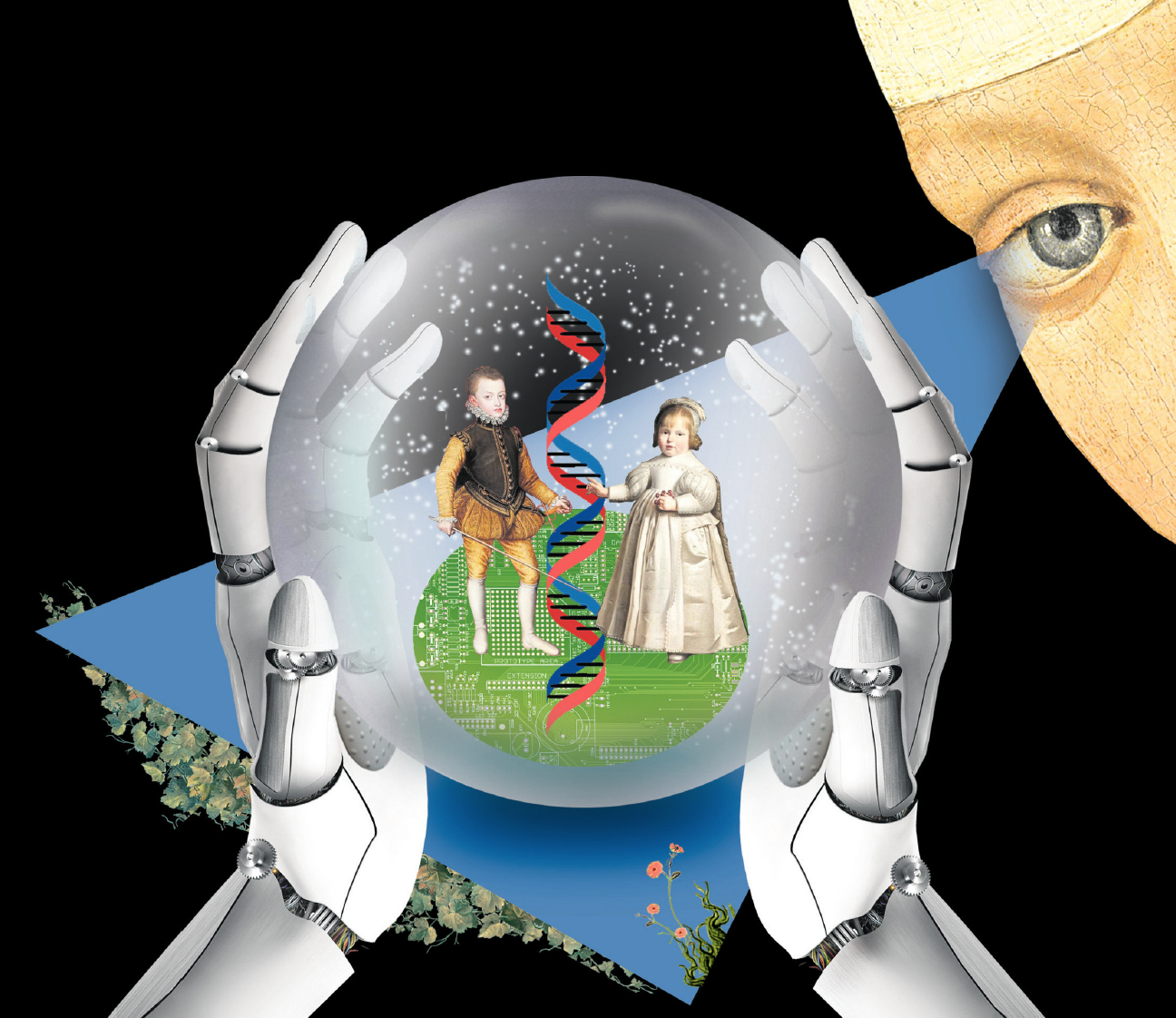
Collage: Stefan Dimitrov
[enlarge]
A Dream of Objectivity
By Peter Galison
Saturday, August 10, 2019
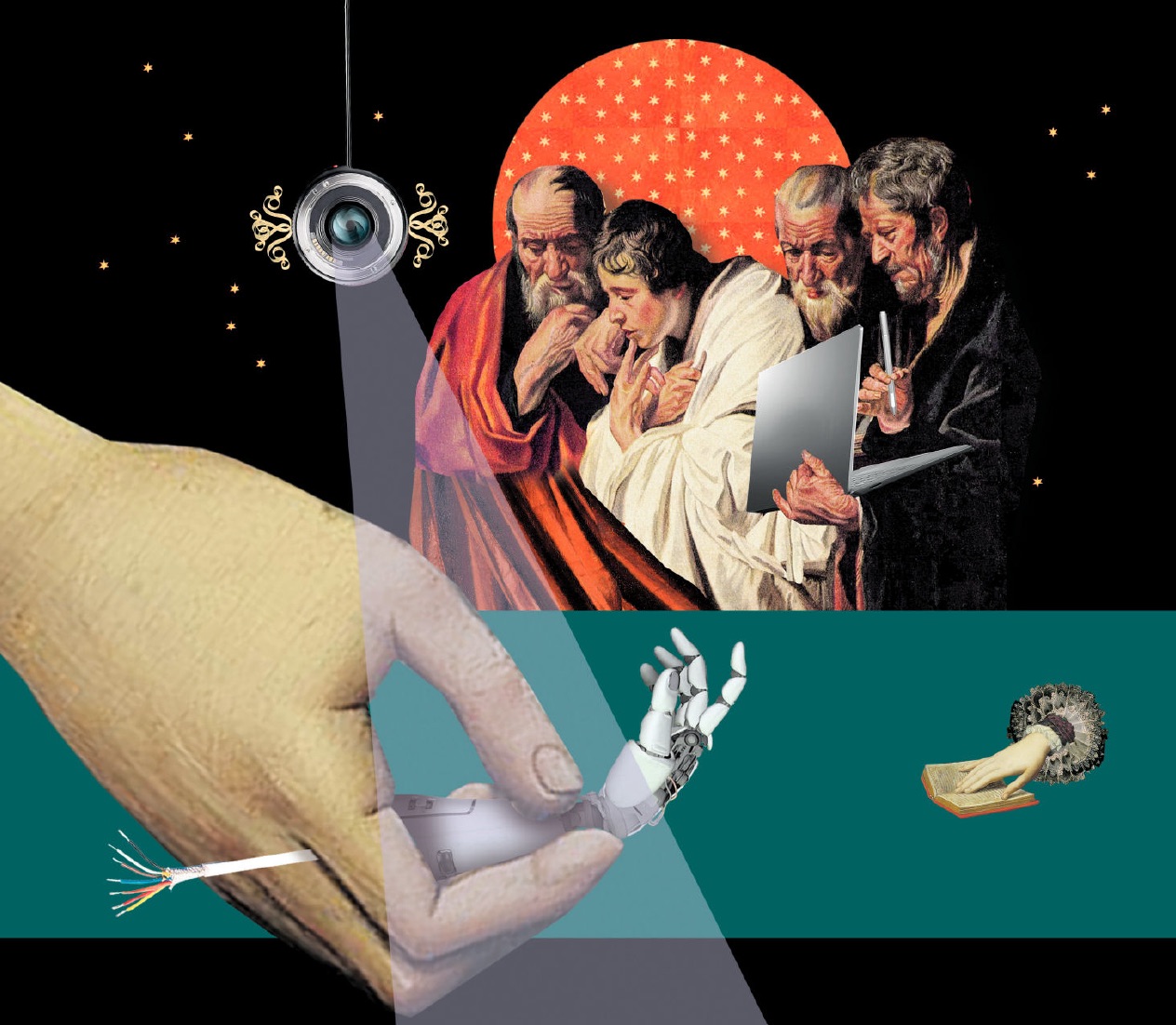
Collage: Stefan Dimitrov
[enlarge]
Once Again With Feeling
By Alex "Sandy" Pentland
Wednesday, July 24, 2019
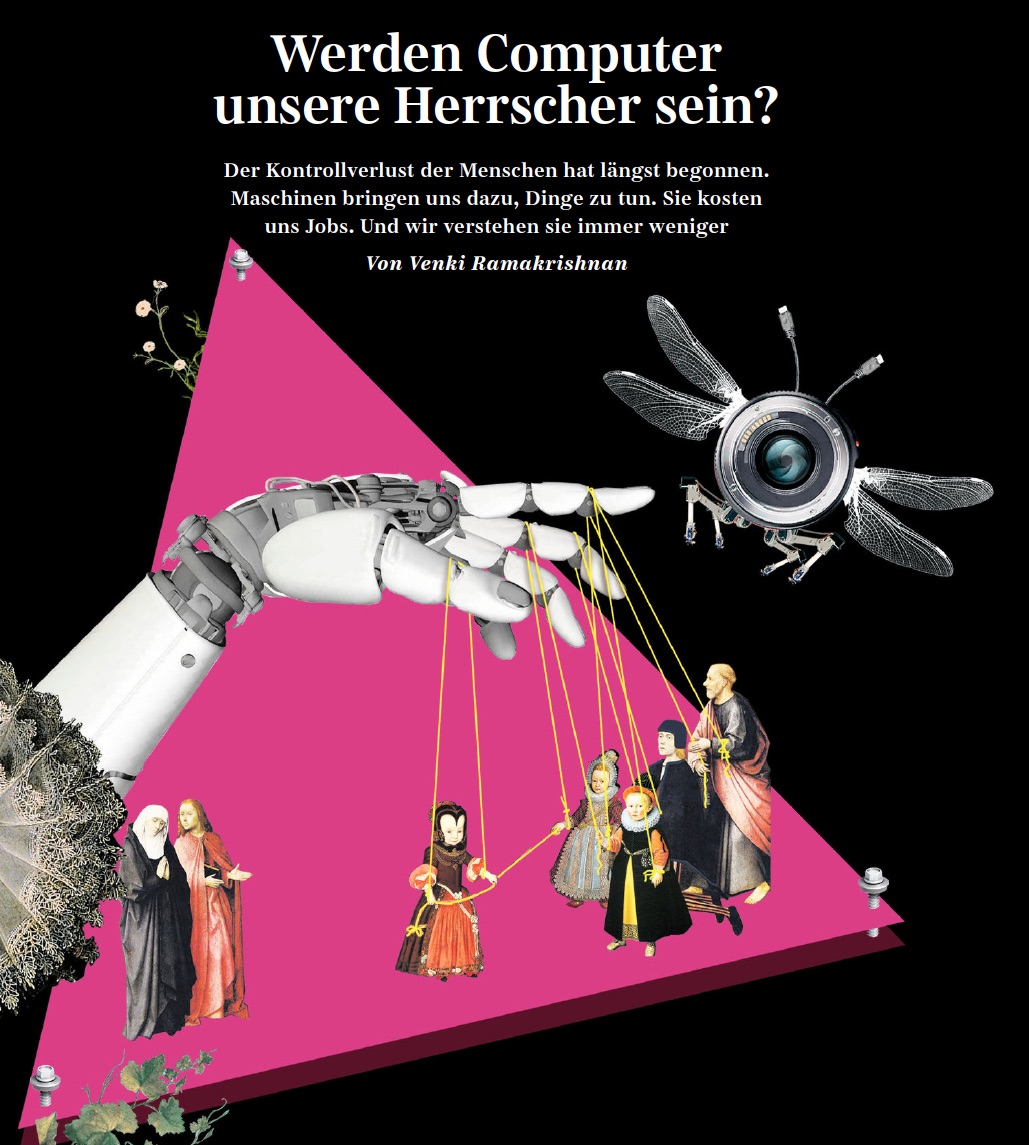
Collage: Stefan Dimitrov
[enlarge]
Will Computers Be Our Rulers?
By Venki Ramakrishnan
Tuesday, July 16, 2019
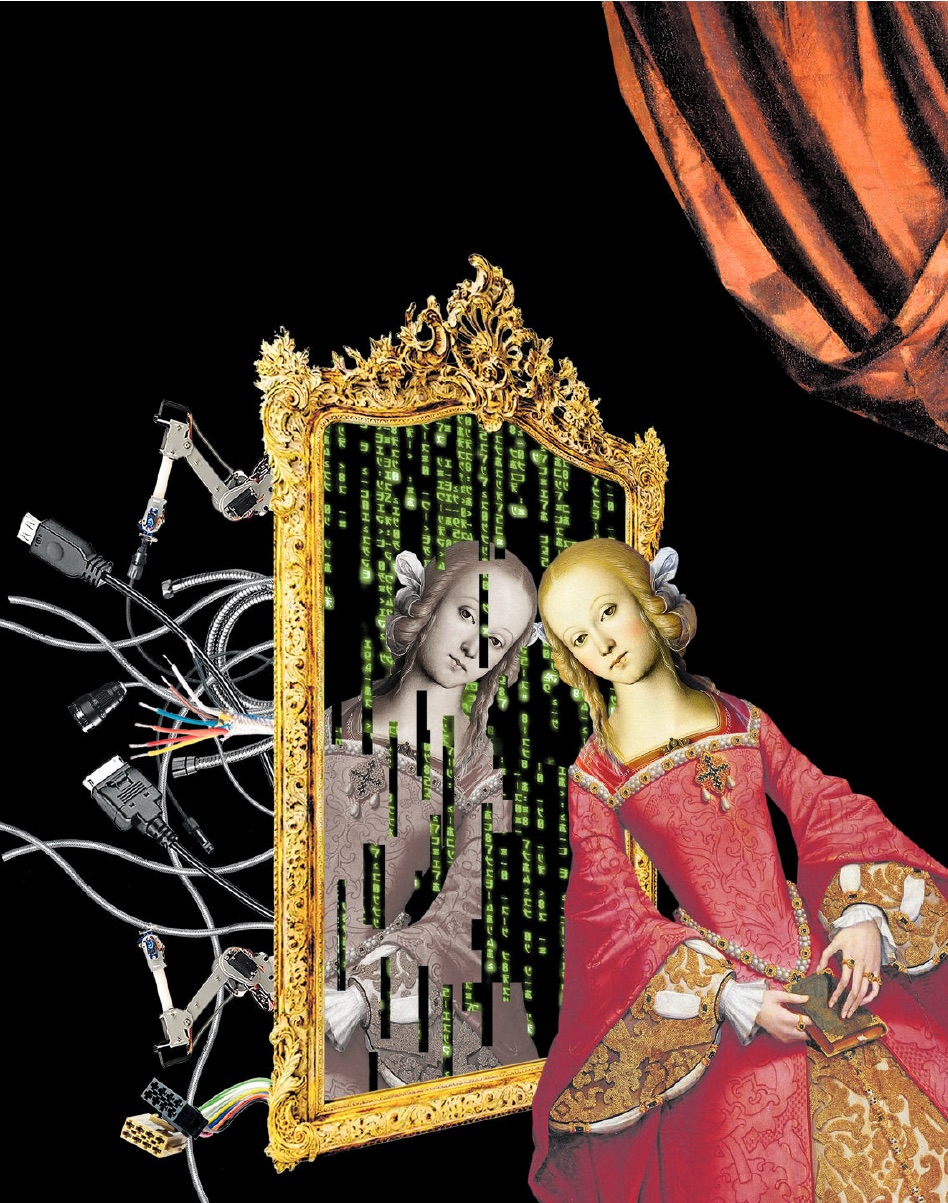
Collage: Stefan Dimitrov
[enlarge]
The Circle is Closing
By Neil Gershenfeld
Tuesday, June 4, 2019
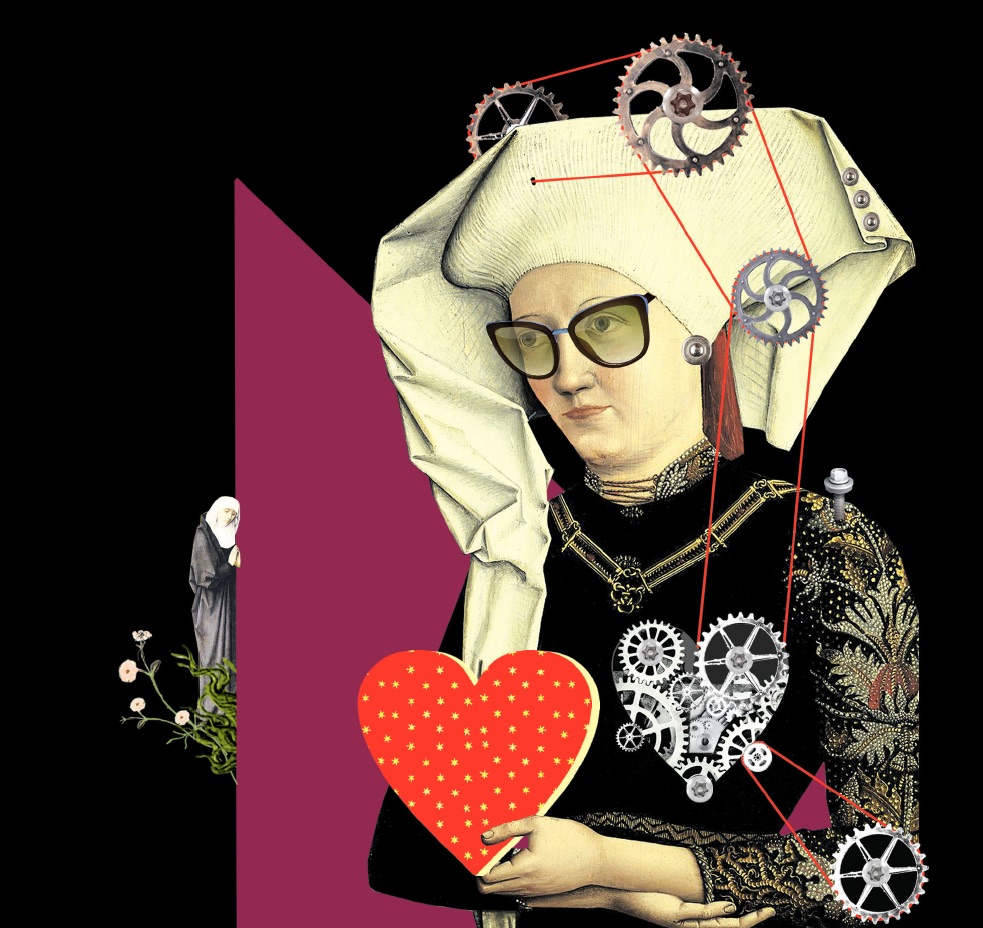
Collage: Stefan Dimitrov
[enlarge]
Borders of Obscure Learning
By Judea Pearl
Wednesday, May 15, 2019
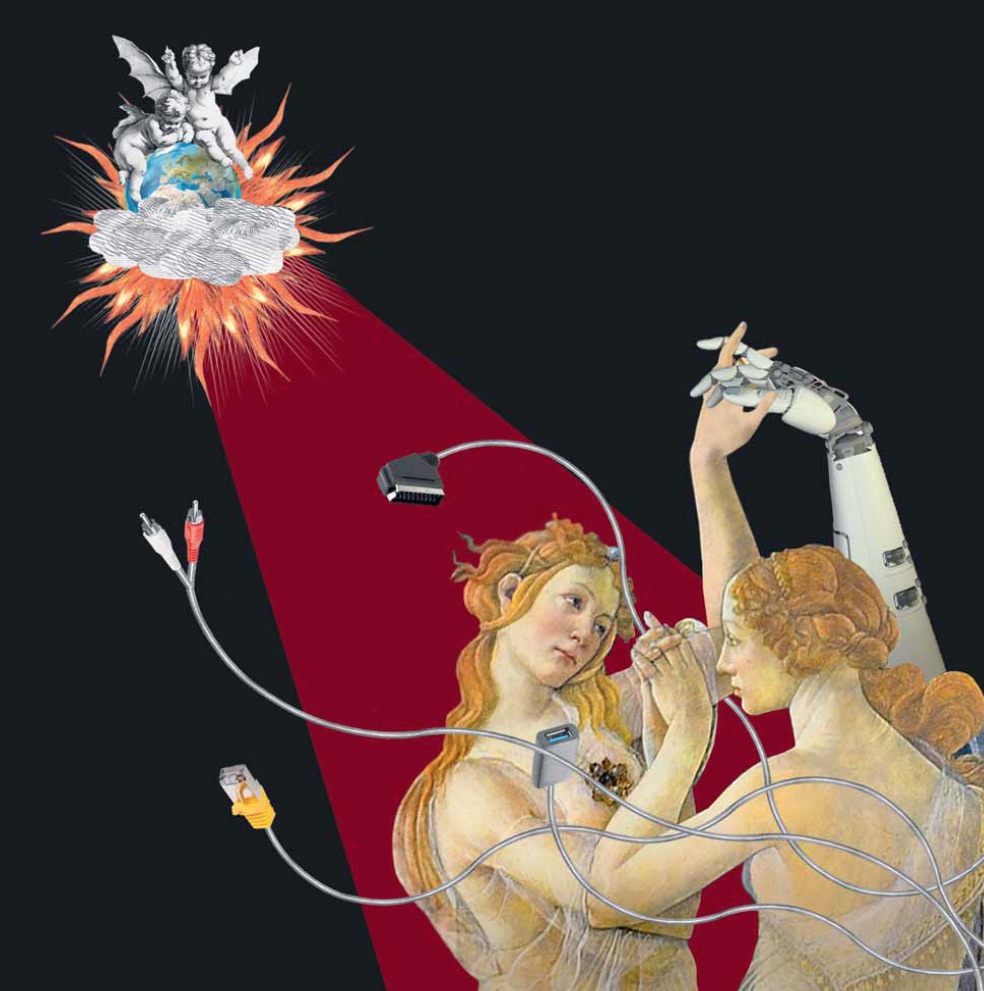
Collage: Stefan Dimitrov
[enlarge]
Unpredictable Human
By Anca Dragan
Tuesday, April 23, 2019

Collage: Stefan Dimitrov
[enlarge]
Meat and Blood Machines
By W. Daniel Hillis
Wednesday, April 10, 2019
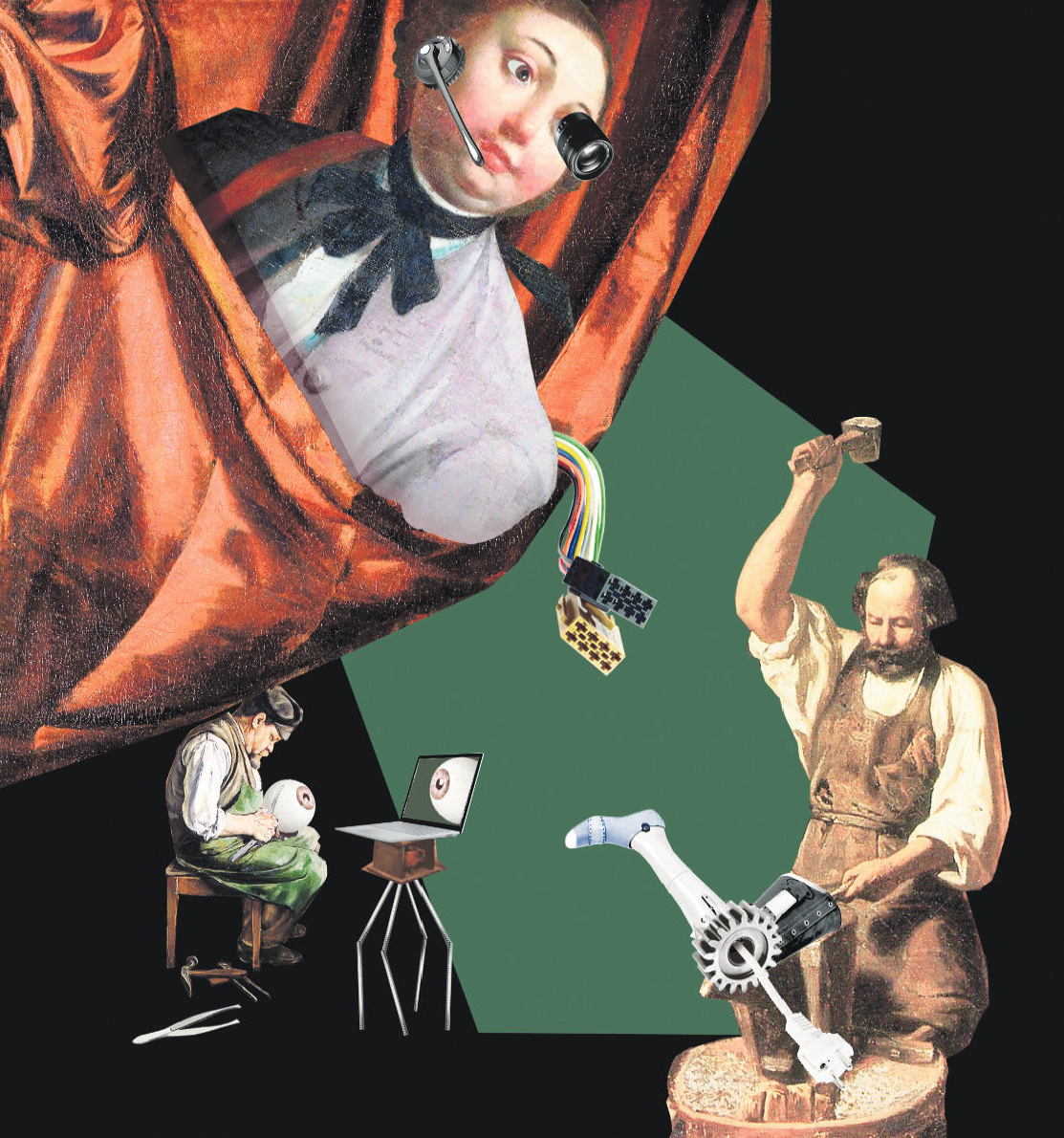
Collage: Stefan Dimitrov
[enlarge]
Beings and Tools
By Daniel C. Dennett
Monday, April 1, 2019
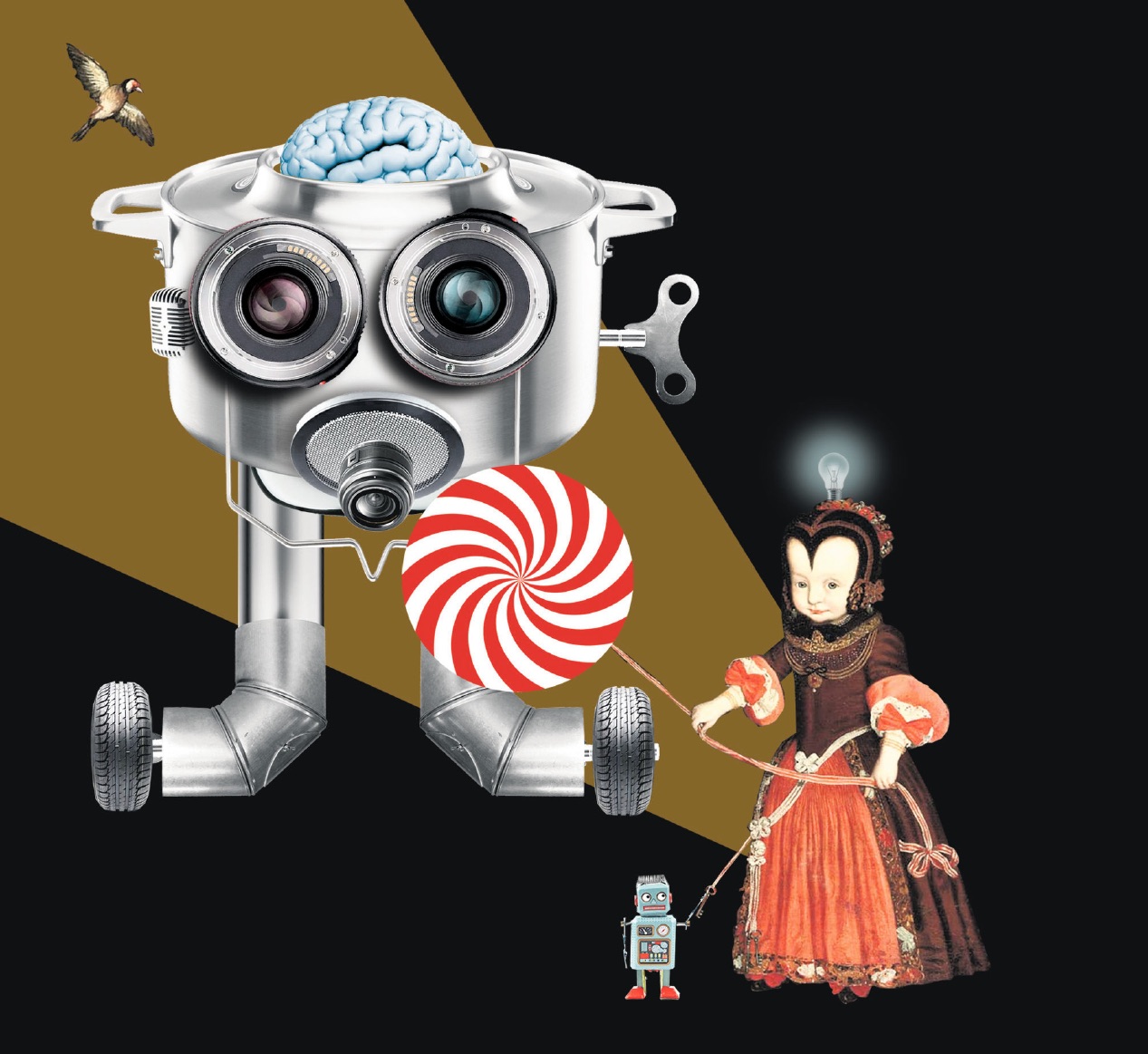
Collage: Stefan Dimitrov
[enlarge]
The Wisdom of Children
By Alison Gopnik
Tuesday, March 26, 2019
[Adapted from Chapter 21 - "AIs Versus Four-Year-Olds" by Alison Gopnik, from Possible Minds: 25 of Looking at AI, edited by John Brockman (Penguin Press, 2019)]
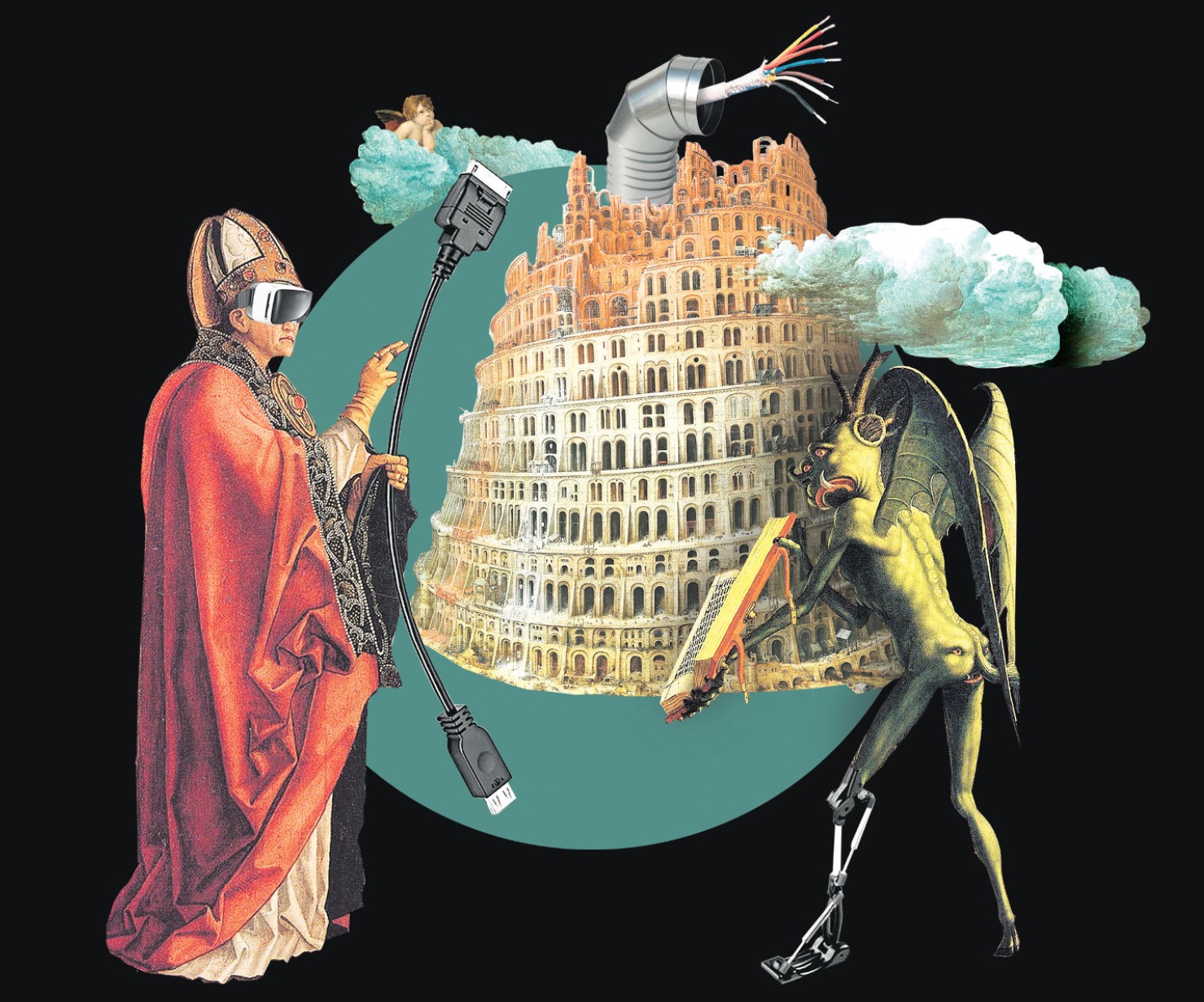
Collage: Stefan Dimitrov
[enlarge]
What Is Intelligence Anyway?
By Steven Pinker
Wednesday, March 20, 2019

EDGE: LIVE, IN LONDON
This year's collaboration with the Serpentine Gallery in London was part of the "Extinction Marathon: Visions of the Future" event, which will took place in the Serpentine Sackler Gallery's extension, designed by Zaha Hadid, on Oct. 18th. The entire event which was live-streamed, will be presented on Edge.
An EDGE Conversation: "DE-EXTINCTION": Stewart Brand & Richard Prum
with Hans Ulrich Obrist & John Brockman
Does the prospect of "de-extinction" change how we think about extinction? Conservation science is shifting from being species-centric to function-centric, focussing on the overall health of ecosystems. Does the extinction of a species leave a "gap in nature" that can only be filled by returning the species to life and to the wild? Or will a functionally close relative serve? Is a de-extincted species really nothing more than a functionally close relative anyway? If it is too difficult and expensive to revive every extinct species, what are the criteria for deciding which ones to work on? Humans are the ones deciding. What ethics and aesthetics should guide those decisions?
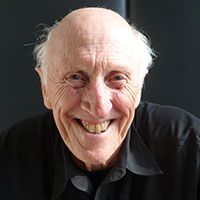
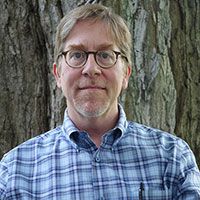
STEWART BRAND is the Founder of the "The Whole Earth Catalog" and Co-founder of The Long Now Foundation and Revive and Restore; Author, Whole Earth Discipline.
RICHARD PRUM is an Evolutionary Ornithologist at Yale University, where he is the Curator of Ornithology and Head Curator of Vertebrate Zoology in the Yale Peabody Museum of Natural History. He is working on a book about duck sex, aesthetic evolution, and the origin of beauty.
"EDGIES ON EXTINCTION": 10 Minute talks by Helena Cronin, Jennifer Jacquet, Steve Jones, and Chiara Marletto, and an EDGE discussion joined by Molly Crockett, Hans Ulrich Obrist, and John Brockman.
I dream about the sea cow or imagine what they would be like to see in the wild, but the case of the Pinta Island giant tortoise was a particularly strange feeling for me personally because I had spent many afternoons in the Galapagos Islands when I was a volunteer with the Sea Shepherd Conservation Society in Lonesome George’s den with him. If any of you visited the Galapagos, you know that you can even feed the giant tortoises that are in the Charles Darwin Research Station. This is Lonesome George here.
He lived to a ripe old age but failed, as they pointed out many times, to reproduce. Just recently, in 2012, he died, and with him the last of his species. He was couriered to the American Museum of Natural History and taxidermied there. A couple weeks ago his body was unveiled. This was the unveiling that I attended, and at this exact moment in time I can say that I was feeling a little like I am now: nervous and kind of nauseous, while everyone else seemed calm. I wasn’t prepared to see Lonesome George. Here he is taxidermied, looking out over Central Park, which was strange as well. At that moment realized that I knew the last individual of this species to go extinct. That presents this strange predicament for us to be in in the 21st century—this idea of conspicuous extinction. [Continue...]
JENNIFER JACQUET is an Assistant Professor of Environmental Studies at NYU researching cooperation and the tragedy of the commons; Author, Is Shame Necessary? Jennifer Jacquet's Edge Bio Page
~ ~ ~ ~
There is a new fundamental theory of physics that’s called constructor theory, and was proposed by David Deutsch who pioneered the theory of the universe of quantum computer. David and I are working this theory together. The fundamental idea in this theory is that we formulate all laws of physics in terms of what tasks are possible, what are impossible, and why. In this theory we have an exact physical characterization of an object that has those properties, and we call that knowledge. Note that knowledge here means knowledge without knowing the subject, as in the theory of knowledge of the philosopher, Karl Popper.
We’ve just come to the conclusion that the fact that extinction is possible means that knowledge can be instantiated in our physical world. In fact, extinction is the very process by which that knowledge is disabled in its ability to remain instantiated in physical systems because there are problems that it cannot solve. With any luck that bit of knowledge can be replaced with a better one. [Continue...]
CHIARA MARLETTO is a Junior Research Fellow at Wolfson College and Postdoctoral Research Assistnat at the Materials Department at the University of Oxford. Chiara Marletto's Edge Bio Page
~ ~ ~ ~
What I wanted to talk about is somewhat of a parallel of that in human populations. If you were to go to a textbook on human biology from the time of Darwin or a bit later, you would certainly get an image that looked a bit like this. This is an image of the so-called races of humankind—racial types, as they called them. I’m not going to go into the question of whether there are real races of humankind because there aren’t. It’s interesting to note that until quite recently people assumed, and scientists assumed too, that the human species was divided into distinct groups that were biologically different from each other and had been isolated from each other for a long, long time.
Well, to some extent that was true. Until quite recently, human populations were isolated from each other. That’s changing quite quickly. [Continue...]
STEVE JONES is a Professor of Genetics at the Galton Laboratory of University College London; Author, The Lanugage of the Genes. Steve Jones's Edge Bio Page
~ ~ ~ ~
... A strange thing happened on the way to a better world in pursuit of an admirable quest, that is, a world free of sex discrimination where you’re judged on your own qualities and not your sex. Truth and falsity went topsy-turvy. The truth—the silence of sex differences—became dangerous, unmentionable, and in its place the conventional wisdom, which is a ragbag of ideas that have long been extinct but are kept ghoulishly alive by popularity, became the entrenched orthodoxy influencing public thinking, agendas and policy-making, and completely crowding out science and sense.
My aim is to show you why the current orthodoxy should be abandoned and why, if you really care about a fairer world, the science does matter. It matters profoundly. I’m going to take two examples, both about the professions, because they very well epitomize the orthodox litany: how society systematically discriminates against women, and how at work they are victims of pervasive sexism. [Continue...]
HELENA CRONIN is the Co-Director of LSE's Centre for Philosophy of Natural and Social Science; Author, The Ant and the Peacock: Altruism and Sexual Selection from Darwin to Today. Helena Cronin's Edge Bio Page
~ ~ ~ ~
MOLLY CROCKETT is an Associate Professor in the Department of Experimental Psychology at the University of Oxford; Wellcome Trust Postdoctoral Fellow at the Wellcome Trust Centre for Neuroimaging. Molly Crockett's Edge Bio Page
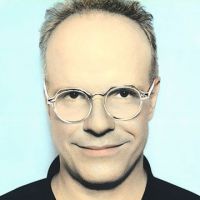

HANS ULRICH OBRIST is the Co-director of the Serpentine Gallery in London; Author, Ways of Curating. Hans Ulrich Obrist's Edge Bio Page
JOHN BROCKMAN is the Editor and Publisher of Edge.org; Chairman of Brockman, Inc.; Author, By the Late John Brockman, The Third Culture. John Brockman's Edge Bio Page
EDGE & SERPENTINE GALLERY
Previous Edge-Serpentine collaborations have included:
"Formulae for the 21st Century" (2007)
"The Table-Top Experiment Marathon" (2007)
"Maps For The 21st Century" (2010)
"Information Gardens" (2011)
SPEAKING OF EXTINCTIONS....
Edge's own contribution to the conversation will be published in February:
March 5, 2014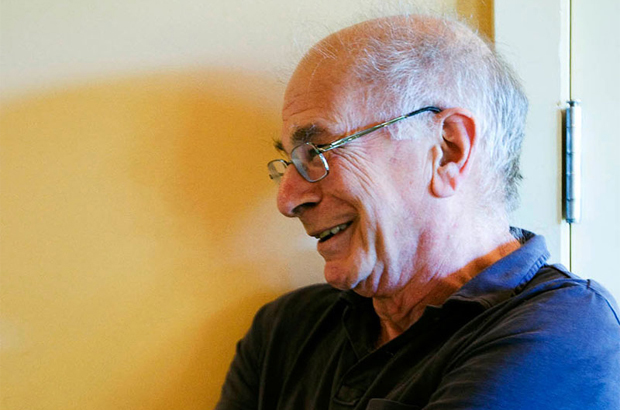
INTRODUCTION
Daniel Kahneman turns 80 today (March 5, 2014). Edge is using this occasion to launch a Reality Club Discussion about his work. (See: On Kahneman). Also, we are pleased to reprise some of his contributions to our pages below.
DANIEL KAHNEMAN is the recipient of the Nobel Prize in Economics, 2002 and the Presidential Medal of Freedom, 2013. He is Eugene Higgins Professor of Psychology Emeritus, Princeton, and Author of Thinking Fast and Slow. (Daniel Kahneman's Edge Bio Page)
2007
Millions of people have been asked the question, how satisfied are you with your life? That is a question to the remembering self, and there is a fair amount that we know about the happiness or the well-being of the remembering self. But the distinction between the remembering self and the experiencing self suggests immediately that there is another way to ask about well-being, and that's the happiness of the experiencing self.
A SHORT COURSE IN THINKING ABOUT THINKING
Edge Master Class

Daniel Kahneman, Larry Page, Jeff Bezos, Katinka Matson, Nathan Myrhvold, Peter Diamandis, Dean Kamen, W. Daniel Hillis, George Smoot, Karla Taylor, Jimmy Wales, Salar Kamangar, George Dyson, Seth Lloyd, Tim O'Reilly, Sergey Brin

Anne Treisman
2008
What we're saying is that there is a technology emerging from behavioral economics. It's not only an abstract thing. You can do things with it. We are just at the beginning. I thought that the input of psychology into behavioral economics was done. But hearing Sendhil was very encouraging because there was a lot of new psychology there. That conversation is continuing and it looks to me as if that conversation is going to go forward. It's pretty intuitive, based on research, good theory, and important. — Daniel Kahneman
A SHORT COURSE IN BEHAVIORAL ECONOMICS
Edge Master Class

Jeff Bezos, John Brockman, Max Brockman, George Dyson, W. Daniel Hillis, Daniel Kahneman, Salar Kamangar, France LeClerc, Katinka Matson, Sendhil Mullainathan, Elon Musk, Nathan Myhrvold, Sean Parker, Paul Romer, Richard Thaler, Anne Treisman, Evan Williams
TWO BIG THINGS HAPPENING IN PSYCHOLOGY TODAY
A Talk By Daniel Kahneman
PUTTING PSYCHOLOGY INTO BEHAVIORAL ECONOMICS
Richard Thaler, Sendhil Mullainathan, Daniel Kahneman
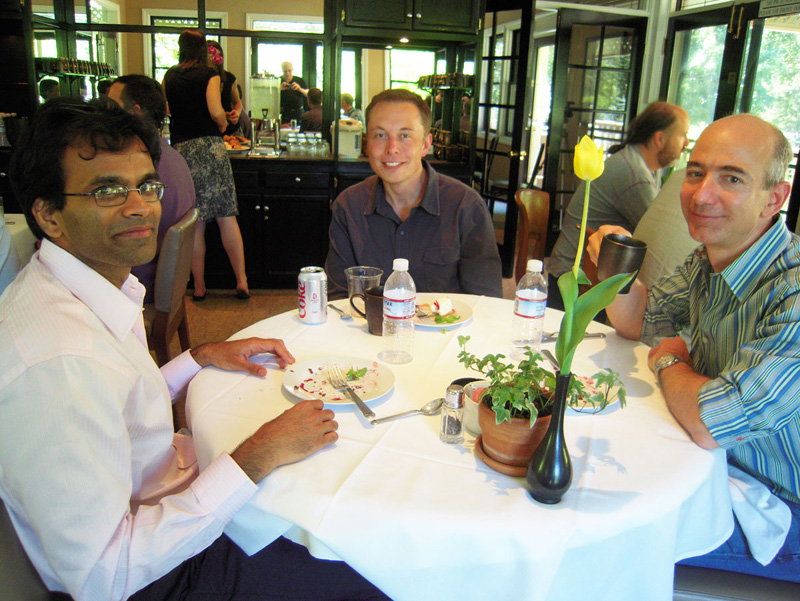
Sendhil Mullainathan, Elon Musk, Jeff Bezos
2011
The power of settings, the power of priming, and the power of unconscious thinking, all of those are a major change in psychology. I can't think of a bigger change in my lifetime. You were asking what's exciting? That's exciting, to me.

THE MARVELS AND THE FLAWS OF INTUITIVE THINKING
Daniel Kahneman
Edge Master Class: THE SCIENCE OF HUMAN NATURE

Steven Pinker & Daniel Kahneman
2013
"I'm still not convinced it was a good idea to write the book." — Kahneman on Thinking Fast and Slow
EDGE RETREAT @ SPRING MOUNTAIN VINEYARD

Daniel Kahneman & Richard Thaler
DANIEL KAHNEMAN & RICHARD THALER
at Edge Retreat, August 22, 2013

[expand]








Edge Master Class 2011: "What's New In Human Nature"
Recently we have published a number of Conversations on related subjects such as "Big Data", "Linked Data", "Data Science", "Web Science", "Semantic Web", "Network Science". Clearly, a new realm is rapidly coming into public consciousness.
In this regard, we have set up this "Special Event" page on "Computational Social Science" to organize and present this material to our readers and to provide access to the ongoing Edge Conversations and related discussions.
Published to date are eight Conversations with: Dirk Helbing, Nicholas A. Christakis, J. Craig Venter, J. Craig Venter, Cesar Hidalgo, Sandy Pentland, Albert-László Barabási and Tim O'Reilly. The presentations include more than five hours of video as well as the texts.
—John Brockman
Editor
"THE CLOTHESLINE PARADOX"
A Conversation with Tim O'Reilly [10.4.12]
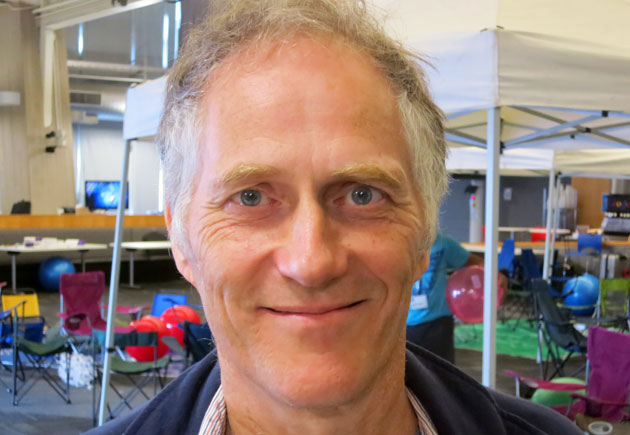
If we're going to get science policy right, it's really important for us to study the economic benefit of open access and not accept the arguments of incumbents. Existing media companies claim that they need ever stronger and longer copyright protection and new, draconian laws to protect them, and meanwhile, new free ecosystems, like the Web, have actually led to enormous wealth creation and enormous new opportunities for social value. And yes, they did in fact lead in some cases to the destruction of incumbents, but that's the kind of creative destruction that we should celebrate in the economy. We have to accept that, particularly in the area of science, there's an incredible opportunity for open access to enable new business models.
TIM O'REILLY is the founder and CEO of O'Reilly Media, Inc., a leading computer book publisher. O'Reilly Media also hosts conferences on technology topics, including the O'Reilly Open Source Convention, the Strata series of conferences on big data, and Tools of Change for Publishing. O'Reilly Media's Maker Media unit publishes Make Magazine and operates Maker Faire, the world's largest gathering of DIY hardware enthusiasts and entrepreneurs. O'Reilly AlphaTech Ventures is a leading early stage venture capital firm.
THINKING IN NETWORK TERMS
A Conversation with Albert-lászló Barabási [9.24.12]

One question that fascinated me in the last two years is, can we ever use data to control systems? Could we go as far as, not only describe and quantify and mathematically formulate and perhaps predict the behavior of a system, but could you use this knowledge to be able to control a complex system, to control a social system, to control an economic system?
ALBERT-LÁSZLÓ BARABÁSI is a Distinguished University Professor at Northeastern University, where he directs the Center for Complex Network Research, and holds appointments in the Departments of Physics, Computer Science and Biology, as well as in the Department of Medicine, Harvard Medical School and Brigham and Women Hospital, and is a member of the Center for Cancer Systems Biology at Dana Farber Cancer Institute.
Albert-László Barabási Edge Bio Page
REINVENTING SOCIETY IN THE WAKE OF BIG DATA
A Conversation with Alex (Sandy) Pentland [8.30.12]

With Big Data we can now begin to actually look at the details of social interaction and how those play out, and are no longer limited to averages like market indices or election results. This is an astounding change. The ability to see the details of the market, of political revolutions, and to be able to predict and control them is definitely a case of Promethean fire --- it could be used for good or for ill, and so Big data brings us to interesting times. We're going to end up reinventing what it means to have a human socie
ALEX 'SANDY' PENTLAND is a pioneer in big data, computational social science, mobile and health systems, and technology for developing countries. He is one of the most-cited computer scientists in the world and was named by Forbes as one of the world's seven most powerful data scientists. He currently directs the
Sandy Pentland's Edge Bio Page
WHAT IS VALUE? WHAT IS MONEY?
A Conversation with Cesar Hidalgo [8.28.12]
We have always had this tension of understanding the world, at small spatial scales or individual scales, and large macro scales. In the past when we looked at macro scales, at least when it comes to many social phenomena, we aggregated everything. Our idea of macro is, by an accident of history, a synonym of aggregate, a mass in which everything is added up and in which individuality is lost. What data at high spatial resolution, temporal resolution and typological resolution is allowing us to do, is to see the big picture without losing the individuality inside it.
CESAR HIDALGO is an assistant professor at the MIT Media Lab, and faculty associate at Harvard University’s Center for International Development. His work focuses on improving the understanding of systems by using and developing concepts of complexity, evolution, and network science. He is also the founder and driving force behind Cambridge Nights, a series of online video interviews with academics who discuss the way in which they view the world.
A NEW KIND OF SOCIAL SCIENCE FOR THE 21st CENTURY
A Conversation with Nicholas A. Christakis [8.21.12]
These three things—a biological hurricane, computational social science, and the rediscovery of experimentation—are going to change the social sciences in the 21st century. With that change will come, in my judgment, a variety of discoveries and opportunities that offer tremendous prospect for improving the human condition.
It's one thing to say that the way in which we study our object of inquiry, namely humans, is undergoing profound change, as I think it is. The social sciences are indeed changing. But the next question is: is the object of inquiry also undergoing profound change? It's not just how we study it that's changing, which it is. The question is: is the thing itself, our humanity, also changing?
NICHOLAS A. CHRISTAKIS is a Physician and Social Scientist, Harvard University; Coauthor (with James Fowler) of Connected: The Surprising Power of Our Social Networks and How They Shape Our Lives.
Nicholas A. Chrsitakis's Edge Bio Page

[40:59 minutes]
BIOLOGY AT THE SPEED OF LIGHT
After Dinner Talk by J. Craig Venter [7.10.12]
We can now send biology at the speed of light, and this is one of the implications of our work, which we recorded two years ago making the first synthetic life form. We completely synthesized the genetic code of a cell starting with a digital code in the computer—it's the ultimate interface between computers and biology. The digital code and the genetic code have a lot in common; something Schrodinger pointed out in 1943, saying it could be something as simple as the Morse code. ... Digital code, as you know, is a binary code, and ones and zeroes, and your genetic code is literally four-base code with ACGs and Ts. We can now readily convert in between the two, and we can define life at its most basic level. Things that were a mystery fifty, sixty, seventy years ago, we now understand completely.
Genomics researcher J. CRAIG VENTER is regarded as one of the leading scientists of the 21st century, most notably for the first sequencing and analysis of the human genome published in 2001 and the most recent and most complete sequencing of his diploid human genome in 2007. He is Co-Founder, Chairman, Synthetic Genomics, Inc.; Founder, J. Craig Venter Institute; Author, A Life Decoded.
J. Craig Venter's Edge Bio Page

[34:16 minutes]
WHAT IS LIFE? A 21st CENTURY PERSPECTIVE
On the 70th Anniversary of Schroedinger's Lecture at Trinity College by J. Craig Venter [7.12.12]
I view DNA as an analogue coding molecule, and when we sequence the DNA, we are converting that analogue code into digital code; the 1s and 0s in the computer are very similar to the dots and dashes of Schrodinger's metaphor. I call this process "digitizing biology".
Genomics researcher J. CRAIG VENTER is regarded as one of the leading scientists of the 21st century, most notably for the first sequencing and analysis of the human genome published in 2001 and the most recent and most complete sequencing of his diploid human genome in 2007. He is Co-Founder, Chairman, Synthetic Genomics, Inc.; Founder, J. Craig Venter Institute; Author, A Life Decoded.
J. Craig Venter's Edge Bio Page
A NEW KIND OF SOCIO-INSPIRED TECHNOLOGY
Dirk Helbing [6.19.12]
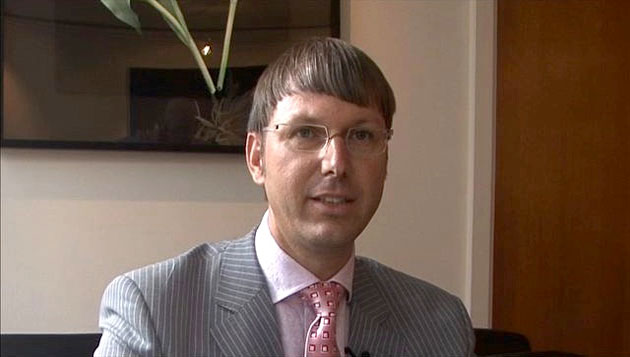
There's a new kind of socio-inspired technology coming up, now. Society has many wonderful self-organization mechanisms that we can learn from, such as trust, reputation, culture. If we can learn how to implement that in our technological system, that is worth a lot of money; billions of dollars, actually. We think this is the next step after bio-inspired technology.
PROFESSOR DIRK HELBING is Chair of Sociology, in particular of Modeling and Simulation, at ETH Zurich – Swiss Federal Institute of Technology, and the Scientific Coordinator of the FuturICT Flagship Proposal.
TURIN, TUESDAY, JULY 10
THE PERMANENT COLLECTION
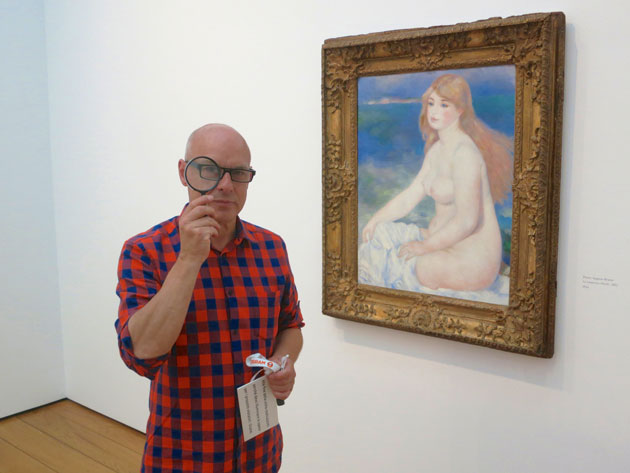

Jennifer Jacquet & Ginevra Elkann, President, Pinacoteca Giovanni e Marella Agnelli
EDGE DINNER IN TORINO
Ginevra Elkann e Carlo Antonelli
hanno il piacere di invitarla all'
Edge dinner
in onore di John Brockman, Craig Venter e Brian Eno
martedì 10 luglio
ore 19.30 aperitivo
ore 20.30 cena
Ristorante Del Cambio – Piazza Carignano, 2 – Torino

After Dinner Talk:
J. CRAIG VENTER ANNOUNCES "THE DIGITAL BIOLOGICAL CONVERTER: BIOLOGY AT THE SPEED OF LIGHT"
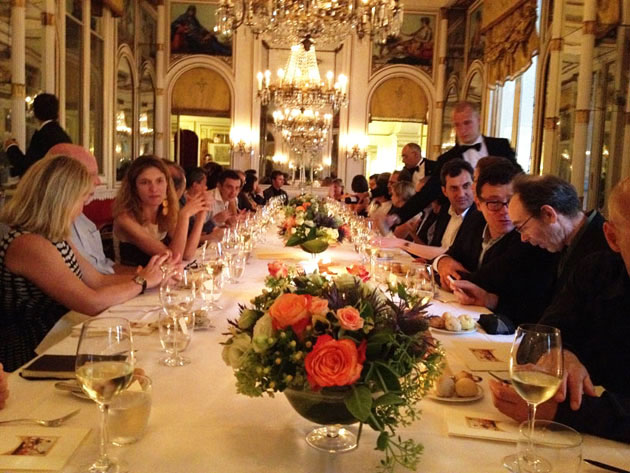
DINNER HOSTS
Ginevra Elkann, Film Producer, Asmara Films; President, Pinacoteca Giovanni e Marella Agnelli
ATTENDEES
Massimo Banzi, Co-founder, Arduino Project
Gabriele Beccaria, Editor, Tutto Scienza, science supplement of La Stampa
Tommaso Bertani, DJ
Vittorio Bo, Director, Genoa Science Festival; Codice Publishing
John Brockman, Publisher & Editor, Edge.org; CEO, Brockman, Inc.; Author.
Mario Calabresi, Italian Journalist and Author; Director, La Stampa
Andrea Cane, Publishing Director, Trade Division, De Agostini Editore
Max Casacci, Guitarist, Producer
Franca De D'Agostini, Philosopher, University of Turin & University of Milan
Alain Elkann, Novelist, Journalist; President, Egyptian Museum of Turin; Director of Cultural Programs, Italian Television
Brian Eno, Artist; Composer; Recording Producer: U2, Coldplay, Talking Heads, Paul Simon; Recording Artist
Lara Favaretto, Artist
Marco Gilli, Director Politecnico di Torino; Professor, Department of Electronics and Telecommunication
Jennifer Jacquet, Researcher, NYU, studying the effect of honor and shame on cooperation
Heather Kowalski, Communications Consultant, J. Craig Venter Institute
Arto Lindsay, Pop Musician, Audio Provocateur, Producer
Katinka Matson, Artist; Literary Agent; President, Brockman, Inc.; Co-Founder, Edge.org
Marzia Migliora, Artist
Martina Mondadori, Publisher, Tar magazine; Non-Executive Member, Board of Directors, Momdadori
Franco Noero, Galleria Franco Noero
Marcella Pralormo, Director, Pinacoteca Agnelli
Gaetano Prisciantelli, Journalist, Il Venredi, La Rebbublica
Patrizia Sandretto Re Rebaudengo, Director, Fondazione Sandretto Re Rebaudengo
Tadjbakhsh Shahriar, COO, EXOR; Former Director, Goldman Sachs, Paris
Gianluigi Ricuperati, Writer and Essayist, La Repubblica
Scarlett Rouge, Artist
J Craig Venter, Genomics Researcher; Synthetic Genomics, Inc.; J. Craig Venter Institute; Author, A Life Decoded
J. Craig Venter & Ginevra Elkann
DUBLIN, THURSDAY, JULY 12
To celebrate the 70th anniversary of Schroedinger's famous lecture, J. Craig Venter speaks at Examination Hall, Trinity College, Dublin on

[CLICK HERE FOR TEMPORARY PRE-PUBLICATION VIDEO LINK]
[AUDIO]
DUBLIN, SATURDAY, JULY 14
CRAIG VENTER DELIVERS KEYNOTE SPEECH AT EUROPEAN SCIENCE OPEN FORUM, DUBLIN
On Sunday, October 16th, Edge, at the invitation of London's leading curator, and long-time collaborator, Hans Ulrich Obrist (HUO), co-director of the Serpentine Gallery, participated in The Serpentine Gallery Garden Marathon, the sixth in the Gallery’s acclaimed Marathon series. The Garden Marathon explored the concept of the garden.
 As Obrist noted,
As Obrist noted,
"A product of the creative encounter between the man-made and the natural, between order and disorder, the garden can offer productive metaphors for the interactions between human life and time, care, thought or space."
"The event is directly inspired by the Serpentine Gallery Pavilion 2011, designed by Peter Zumthor. The encounter of architecture and garden creates a contemplative space that is both set within – and meditatively separated from – the wider surroundings of Kensington Gardens.
"Participations will range from the fields of horticulture, design and architecture to explore the creation of gardens and their spatial, urban and scientific importance, through to works by artists and readings by poets and writers exploring the significance of the garden in our experience of the world."
[Photo: Stefano Boeri, Vertical Forest, © Stefano Boeri]
Other recent collaborations between Edge and HUO have included "What is your Formula, Your Equation, Your Algorithm: Formulae for the 21st Century" in 2007. "Maps for the 21st Century" in 2010. HUO and I have also had the pleasure of writing about each other. See "Brockman's Taste for Science, or how to entertain the smartest people" by Hans Ulrich Obrist, and "A Rule of the Game: A Talk with Hans Ulrich Obrist on Edge.
INFORMATION GARDENS consisted of talks by Mark Pagel, Jennifer Jacquet, and Brian Eno.
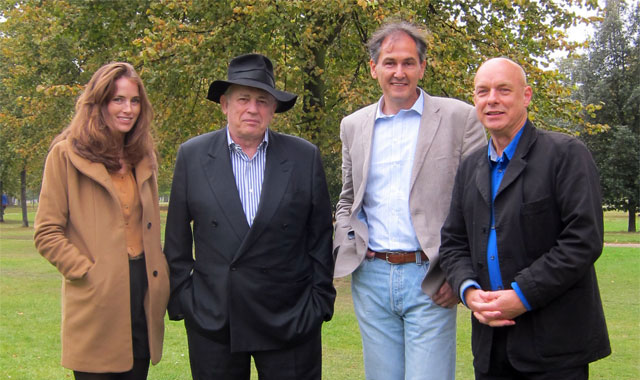
John Brockman In Conversation with:
Mark Pagel, Cities as Gardens
"Up until 10,000 years ago there were no permanent settlements and all human groups lived by hunting and gathering. Then agriculture was discovered and everything changed. Now a small number of people could supply food for the rest and the first cities arose. Every since that time there has been a steady movement of people out of our original arcadia and into cities, such that now over half the world lives in them. But why given that cities have historically been targets of attack and places of crime and where diseases fester and spread? The answer is that cities have acted as gardens of our prosperity, creativity and innovations and their continued existence is vital to fitting the projected 9 billion people onto this planet. Surprisingly, they are the new 'green centres' of the world."
MARK PAGEL is a Fellow of the Royal Society and Professor of Evolutionary Biology; Head of the Evolution Laboratory at the University of Reading; Author Oxford Encyclopaedia of Evolution; co-author of The Comparative Method in Evolutionary Biology. Forthcoming book Wired for Culture: Origins of the Human Social Mind.
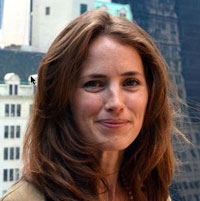
Jennifer Jacquet, Shame Totem v.2.0
"Throughout the 19th century, native tribes that spanned the north coast of North America erected shame totem poles to signal to the community that certain individuals or groups had transgressed. This art is resurrected with a modernized, garish, digitally rendered 3-D shame pole to represent the most shameful corporations – chosen with the assistance of 500 people based in the U.S. who surveyed about the corporations that have most negatively affected society. The talk will describe the relationship between gardens and shame, a historical view on shame totems, the specific concept for this work, and details of its creation."
JENNIFER JACQUET is a Postdoctoral Researcher, Fisheries Centre/Department of Mathematics, University of British Columbia; Research interests incude environmental sustainability (particularly fish), the evolution and function of guilt, honor, and shame, and the role of information technology in shaping environmental action.

Brian Eno, Composers as Gardeners
"My topic is the shift from 'architect' to 'gardener', where 'architect' stands for 'someone who carries a full picture of the work before it is made', to 'gardener' standing for 'someone who plants seeds and waits to see exactly what will come up'. I will argue that today's composer are more frequently 'gardeners' than 'architects' and, further, that the 'composer as architect' metaphor was a transitory historical blip."




